MicrobeBio is a regenerative farming system that supports farmers in producing food in a way that nurtures and restores soil health, protects the climate and water resources, and enhances farms’ productivity and profitability.

Next-Gen
Agriculture
Technology

WHAT IS
OUR GOAL?

At MicrobeBio, we’re committed to advanced growth for our customers, employees, and stakeholders. We maintain high standards of safety, ethics, and environmental responsibility, and strive to be cost effective and sustainable.
We work with government and university scientists to develop the latest technology and bring the best solutions to the market. Our in-house research and development team is always looking for new ways to improve our products and services.
We value our investors and partners and work hard to build long-term relationships based on trust and dependability. We strive for excellence in everything we do, and we’re always looking for new opportunities to grow. Thanks for being a part of our team!
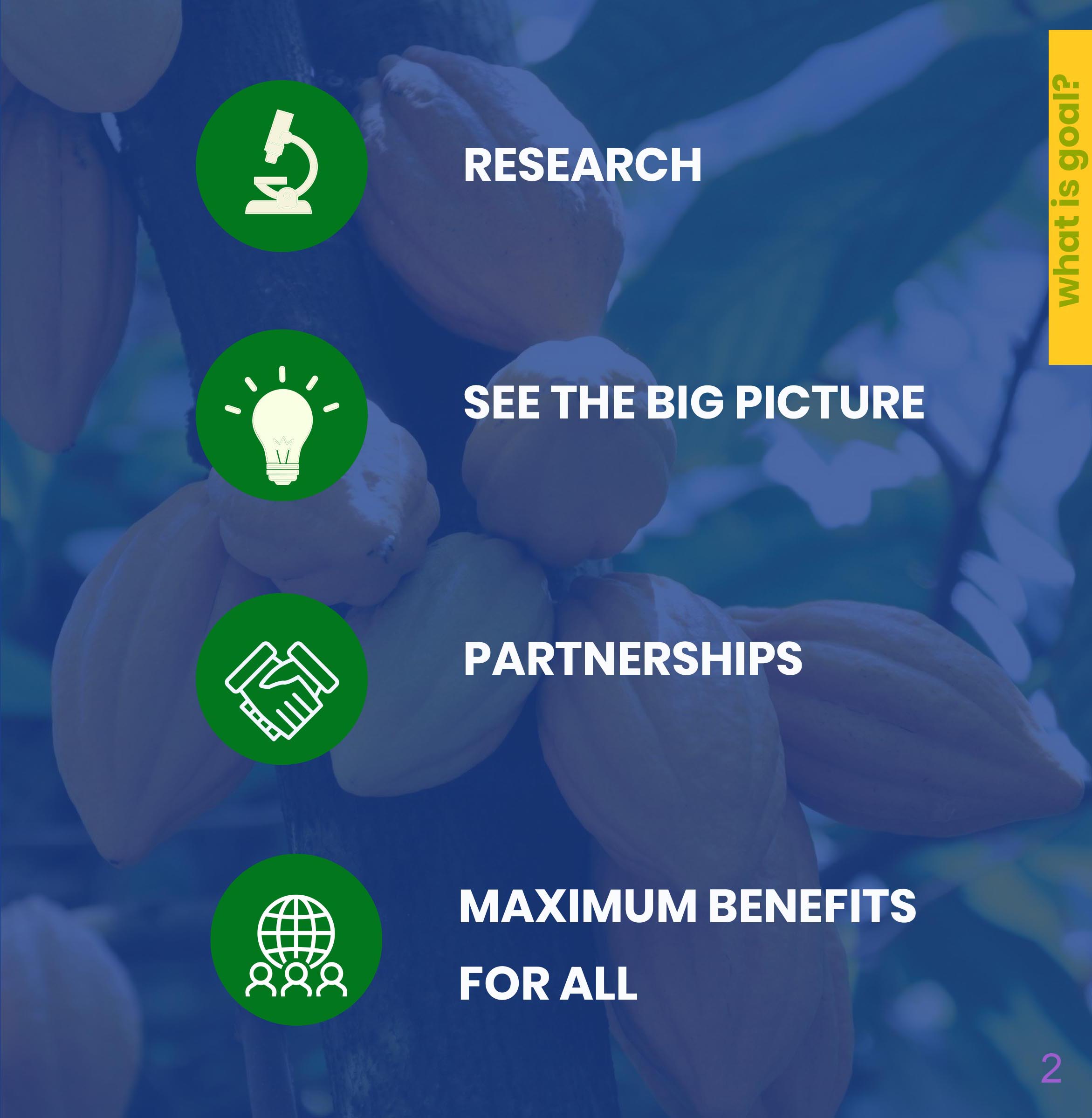
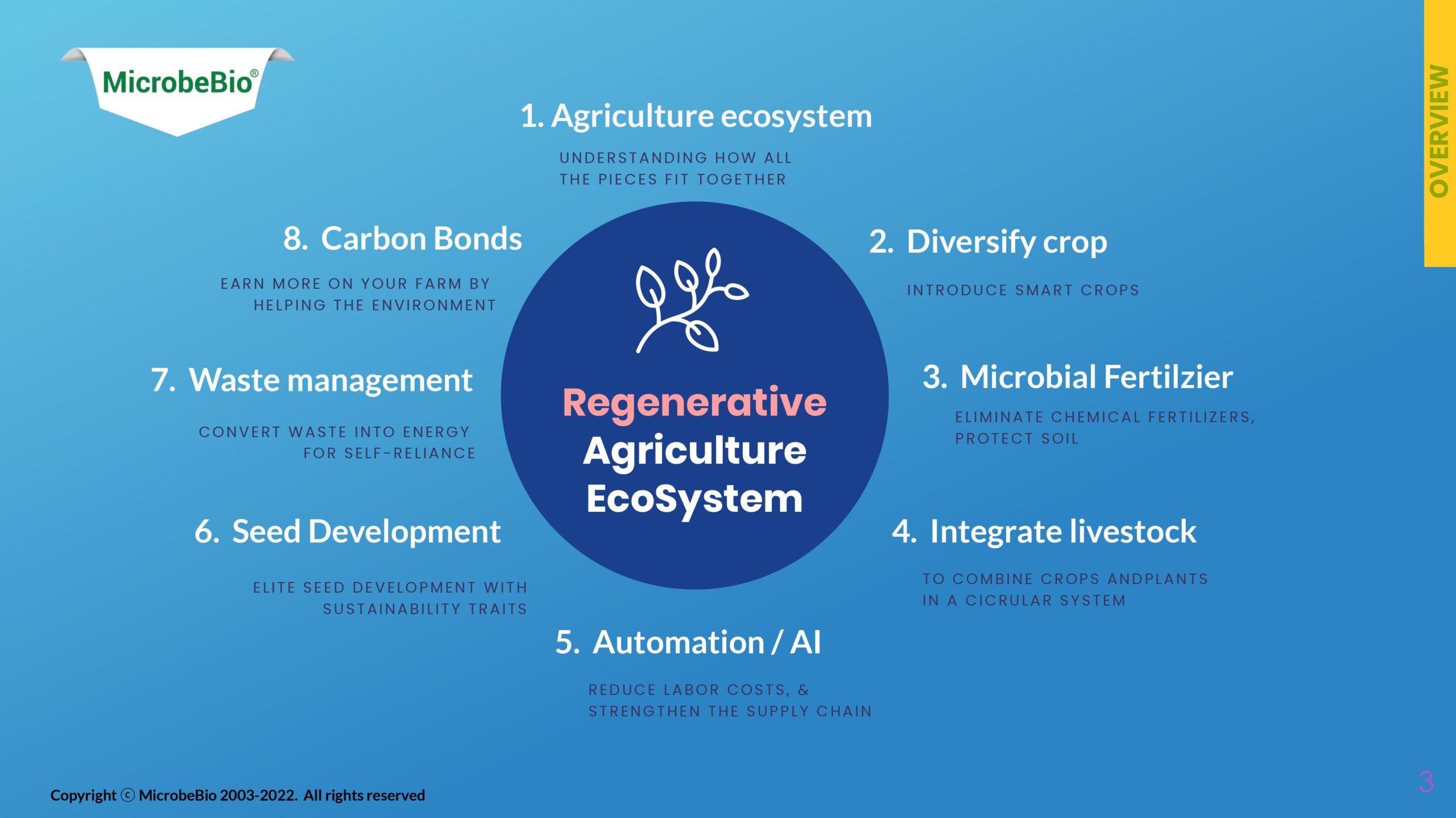
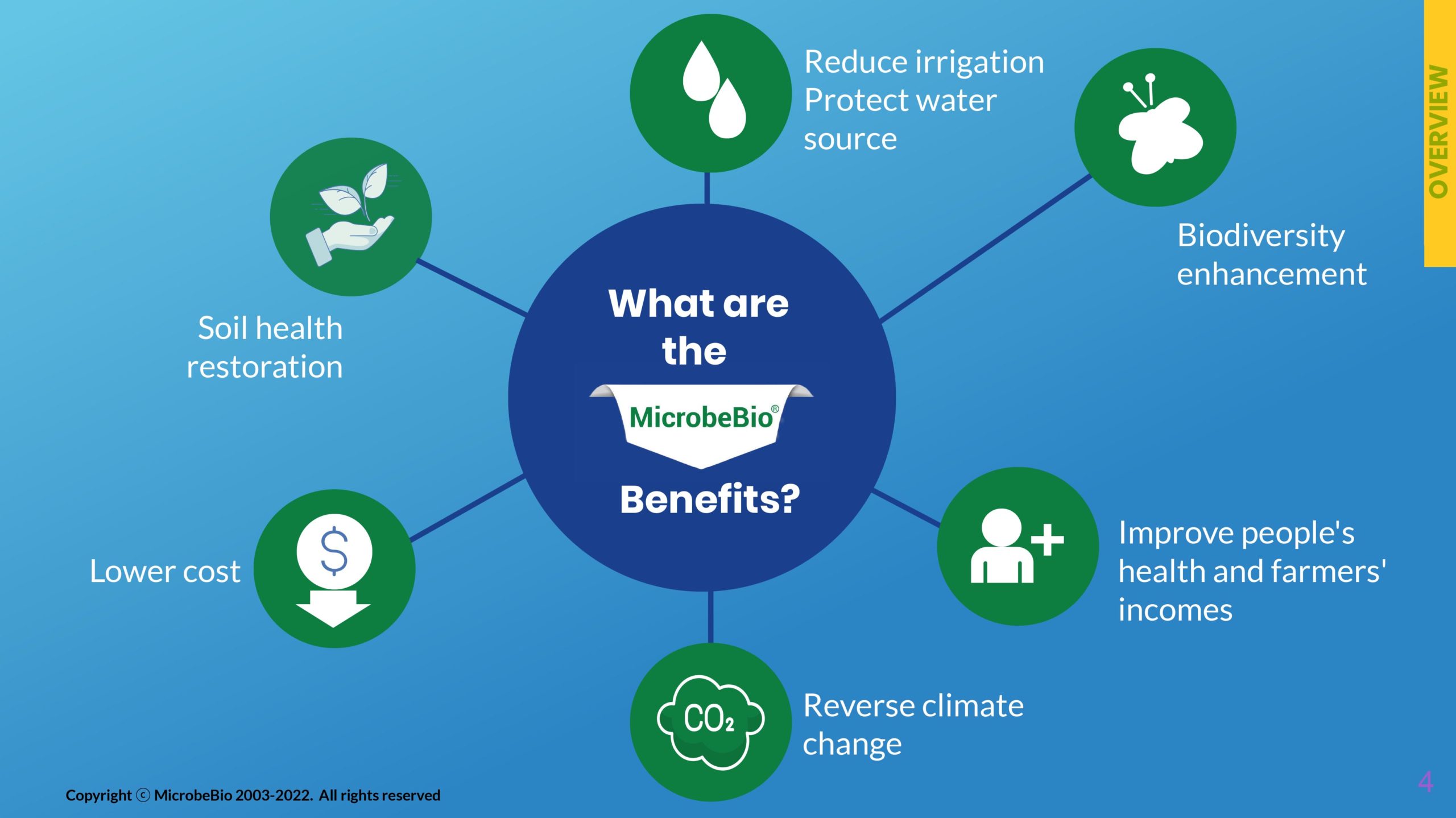
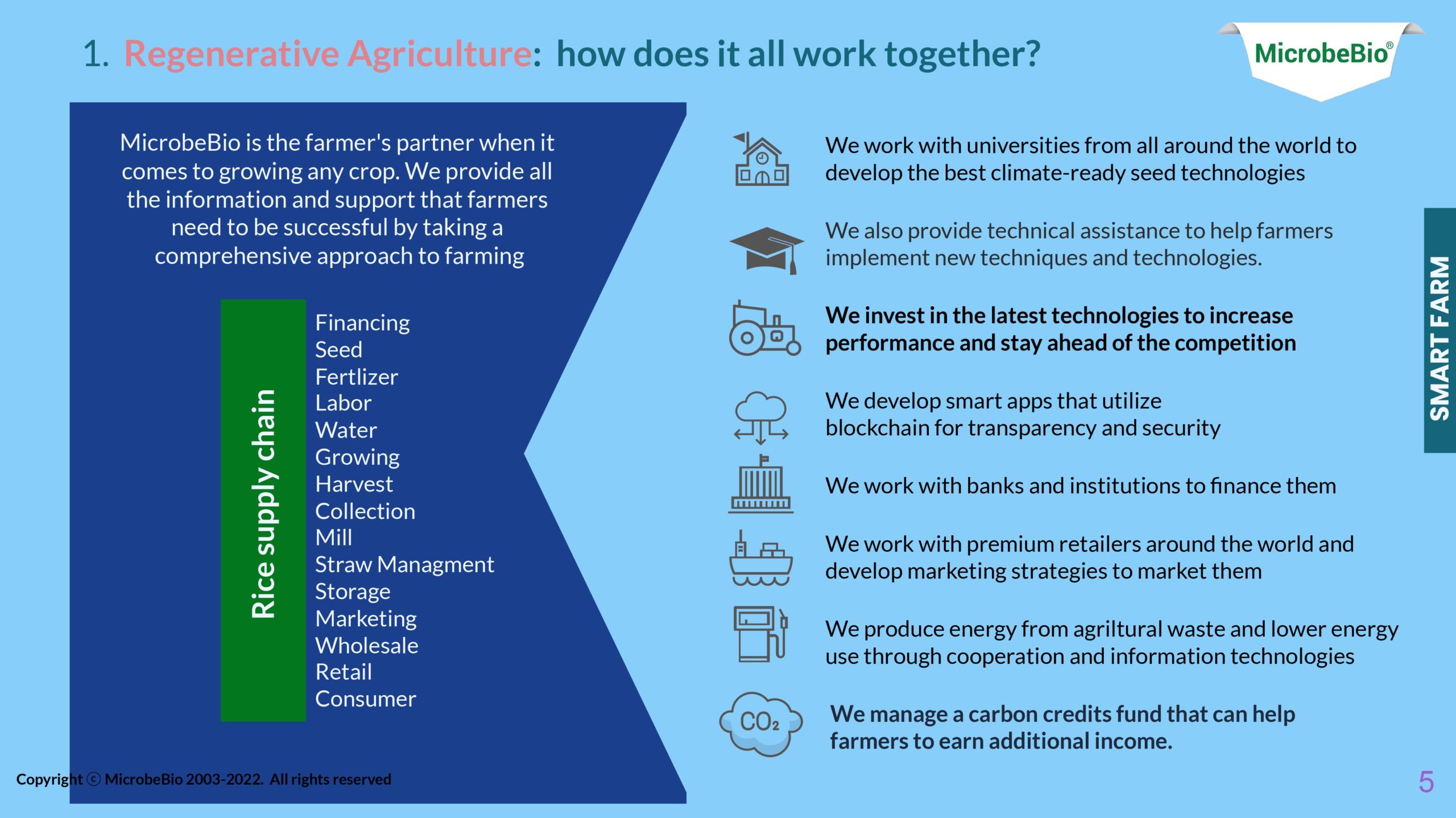
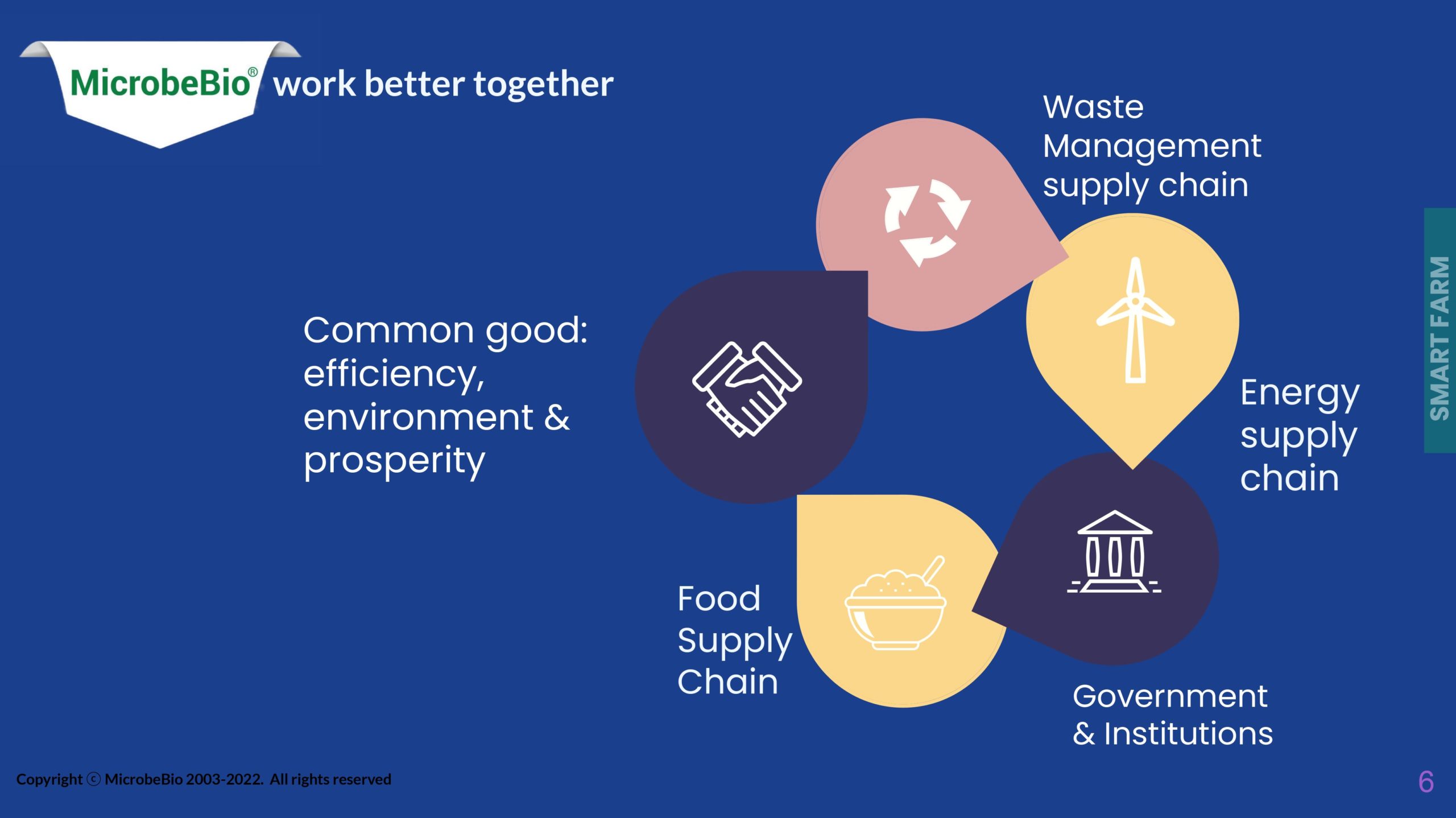
2. Biological Fertilizer
& Pest control
The MicrobeBio system is based on cutting-edge research that demonstrates how microbes in the soil can be harnessed to create a more efficient and sustainable agricultural system. By mimmicking natural processes, the MicrobeBio system helps farmers to build soil health, improve water use efficiency, and reduce their reliance on chemical inputs.
This approach to farming results in food that is not only nutritious and delicious but also supports the health of our planet. When we regenerate the soil, we create a more stable environment for food production, one that is less susceptible to the effects of climate change and that can help mitigate the impact of droughts and floods.
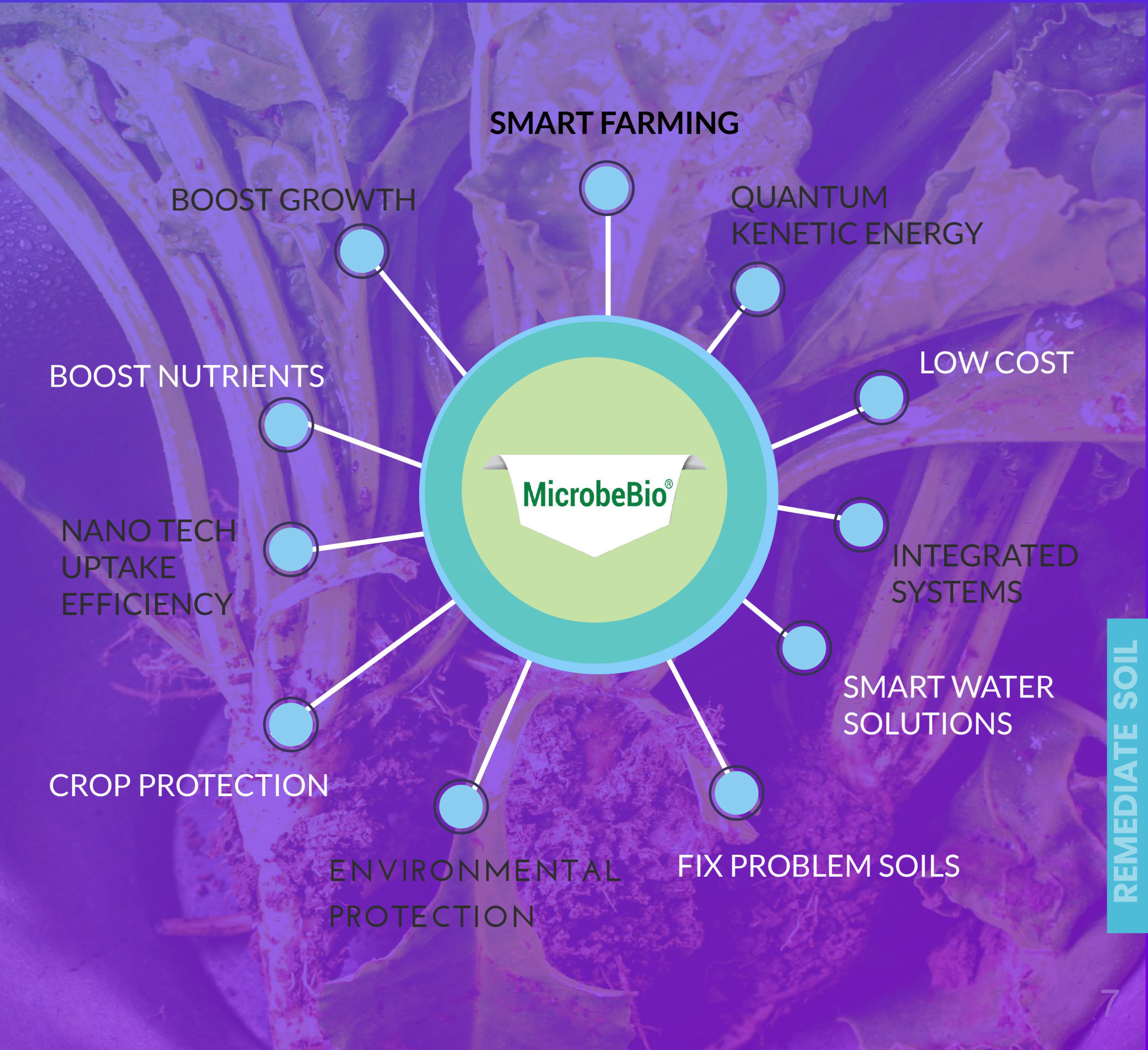

For FARMER
MicrobeBio has developed a unique approach to regenerative agriculture that is customized to the needs of individual farms. This approach has the potential to increase the income of farmers and the profitability of farms.


For the ENVIRONMENT
Limiting deforestation and grassland conversion
MicrobeBio regenerative agriculture practices can help to restore degraded farmland and improve soil health. This can lead to increased yields from existing arable land, and prevent the need for farms to expand into new areas, causing deforestation. By using these practices, we can help to keep our and scapes healthy and productive.

for PEOPLE
One of the key aims of MicrobeBio regenerative agriculture is to improve food security and nutrition for all. By increasing soil health, we can make our food production systems more resilient to climate change and decrease the risks of empty shelves, and improve the quality of the food we eat. Healthy soils are teeming with microorganisms that help plants access nutrients and produce compounds that can prevent disease and promote longevity. When we regenerate our soils, we are not only improving the quality of our food, but also our own health and well-being.
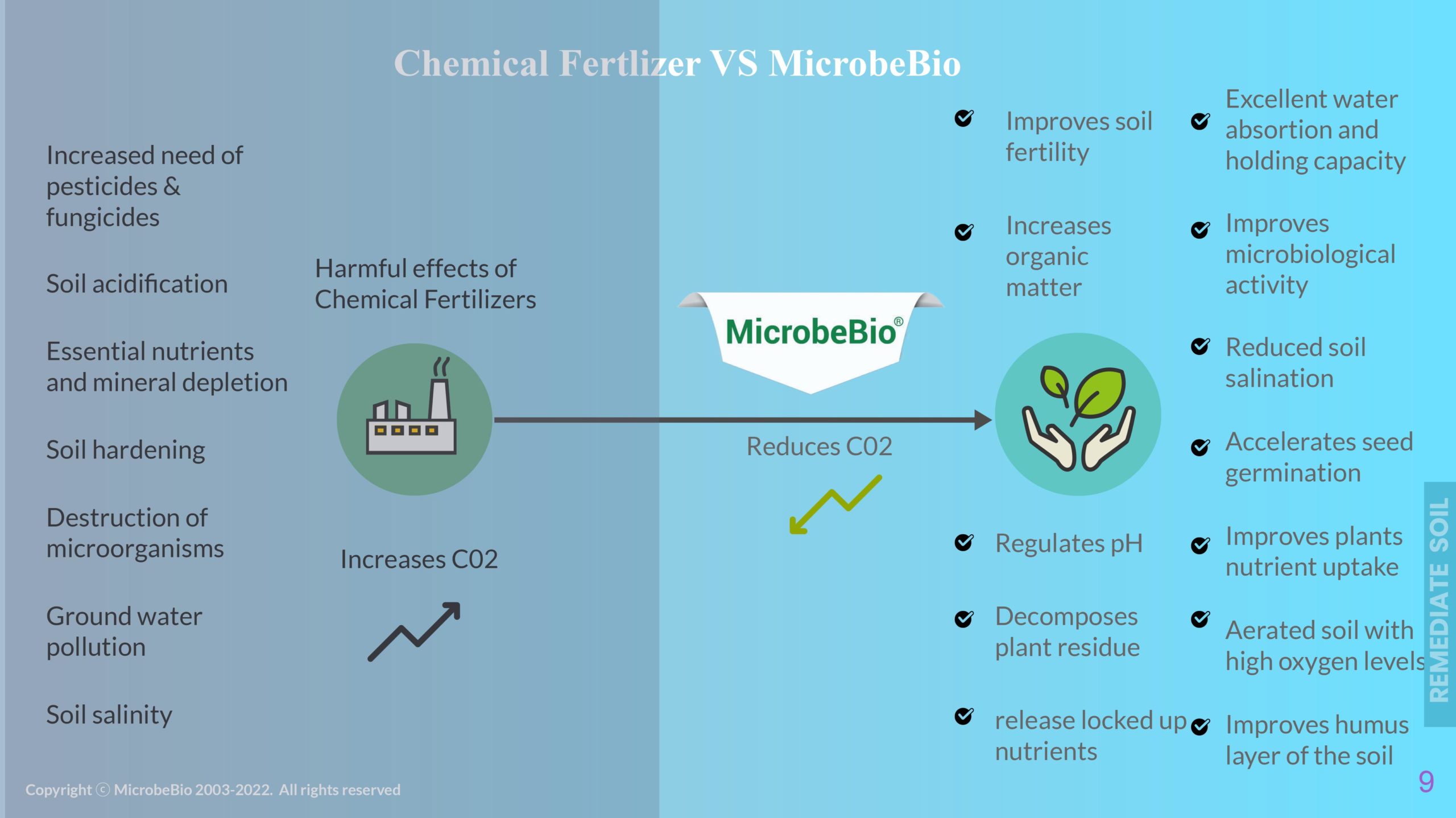
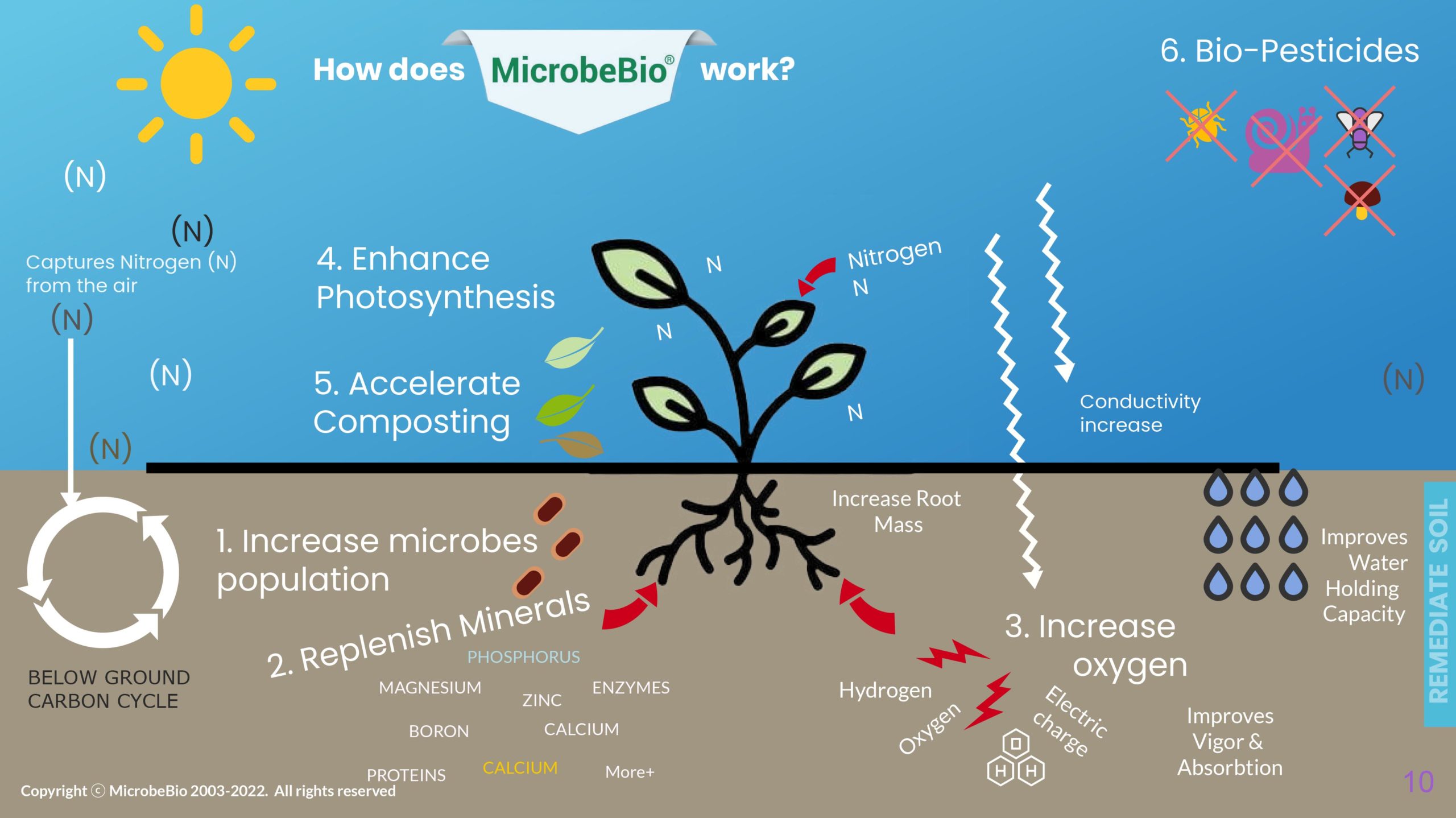
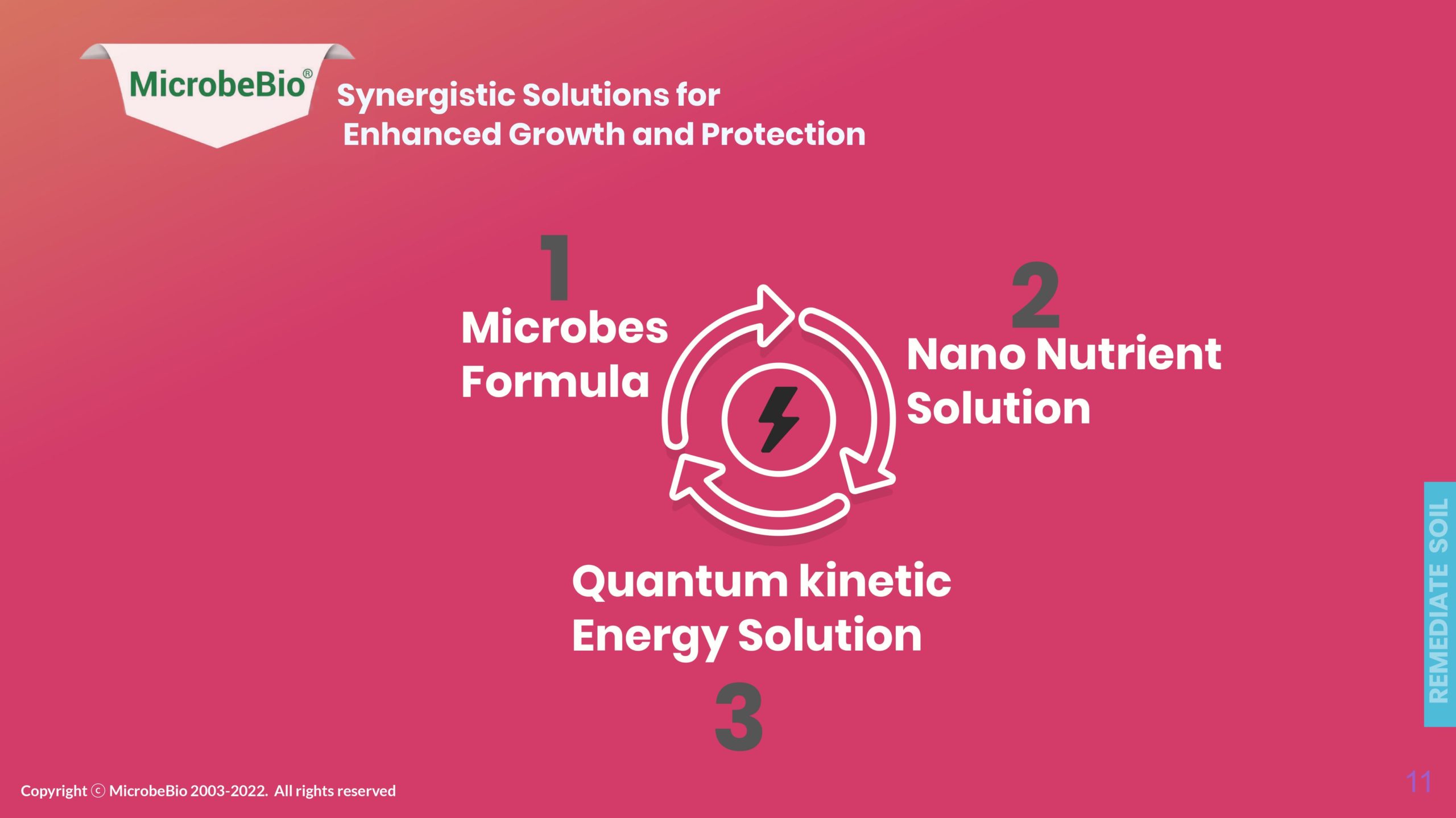
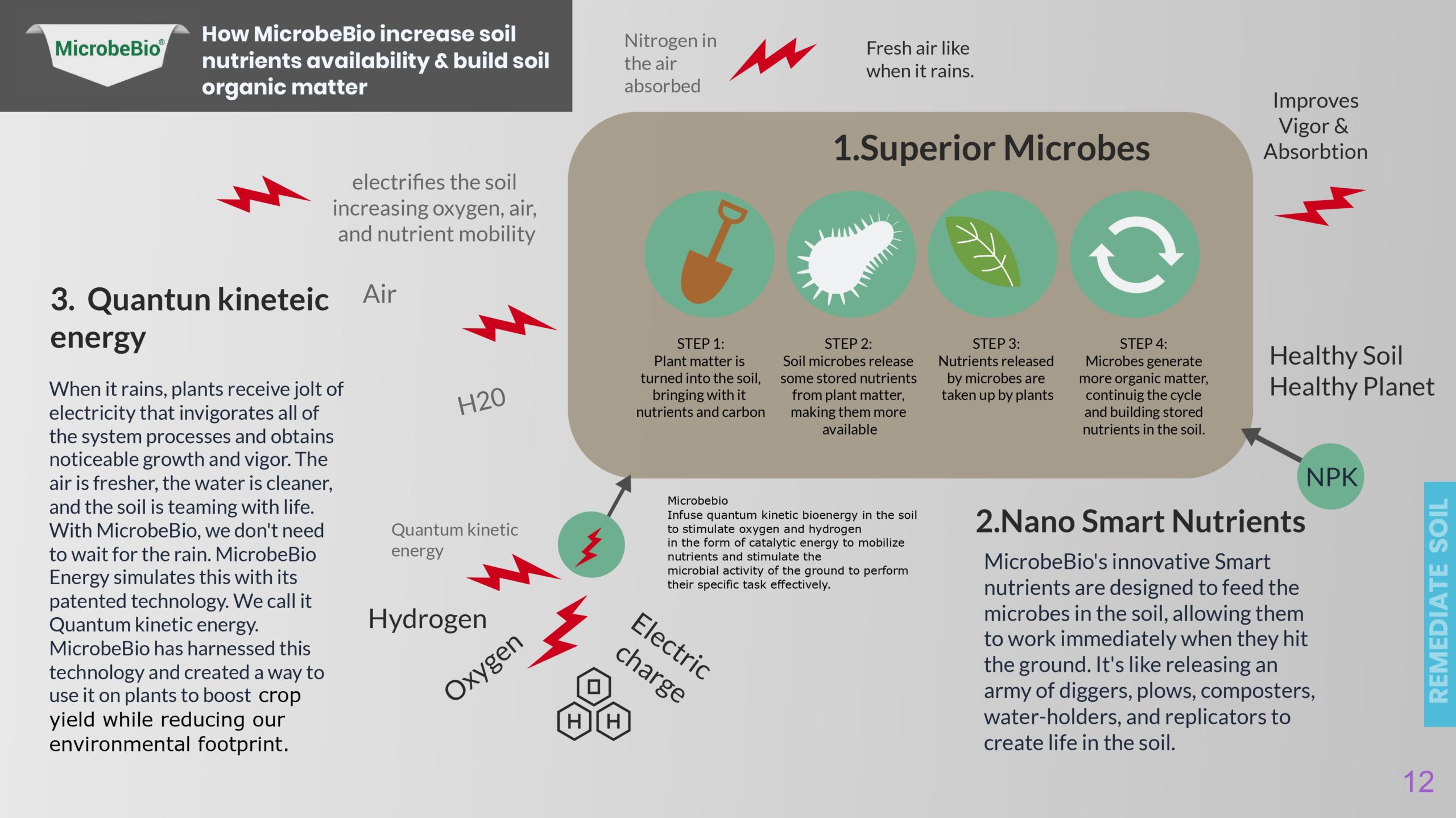

1. Release Tied-Up Nutrients
Although nutrients like nitrogen, phosphorus, and potassium are already present in large quantities in the soil, they are locked up in a form that is inaccessible to plants. Microbebio stimulates the soil’s fertility to harvest nutrients and release them to plants.
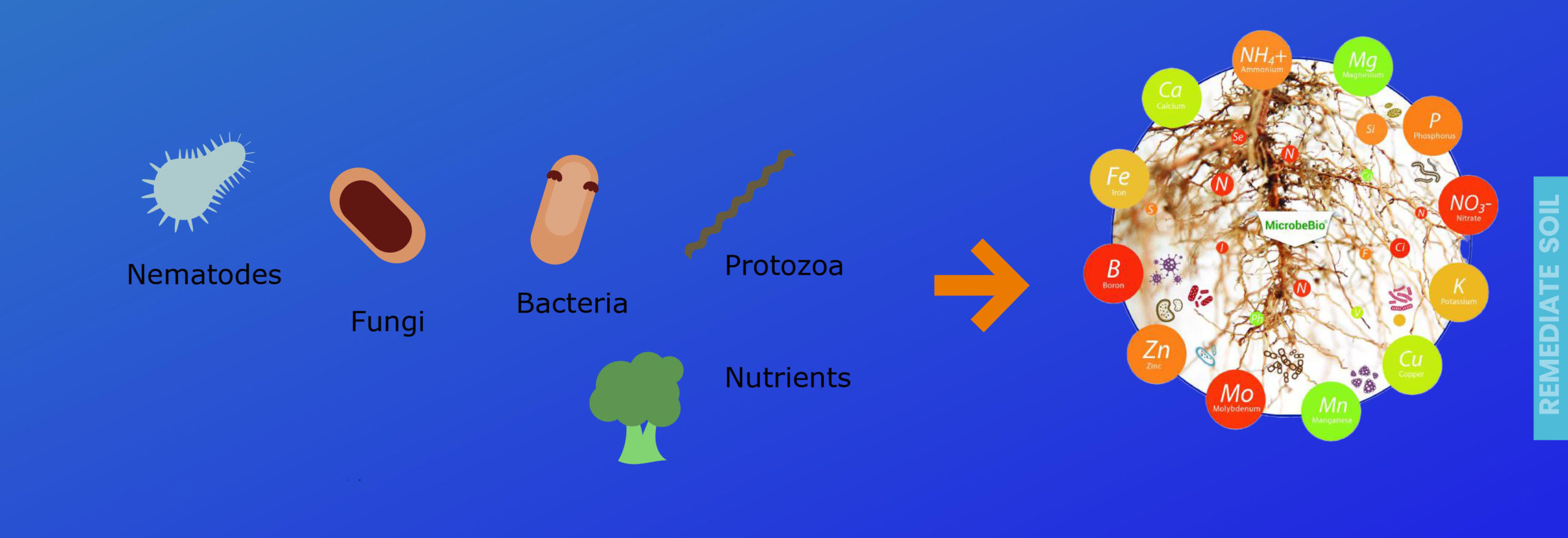
1.
MICROBRBIO'S MICRO-ORGANISMS
USED IN PLANT PROTECTION


Microbebio’s microbes are natural components of the environment and play an important role in plant protection. Micro-organisms such as bacteria, fungi, and protozoa are used to protect plants from a variety of diseases. These micro-organisms work by producing substances that suppress or Kill pathogens before they can cause harm. The beneficial microbes form a protective shield around the plant’s roots and create a hostile environment for disease-causing organisms. Additionally, microbes also help break down dead organic material into nutrients which aid in healthy plant growth. Microbebio is one such product that contains beneficial soil microbes that help protect plants from harmful parasites nematodes, pathogens, pests, and disease damage while promoting healthy development. Microbebio helps plants ward off a wide range of diseases, enabling them to maintain normal growth even when under attack from harmful parasites nematodes, pathogens, pests, or diseases.
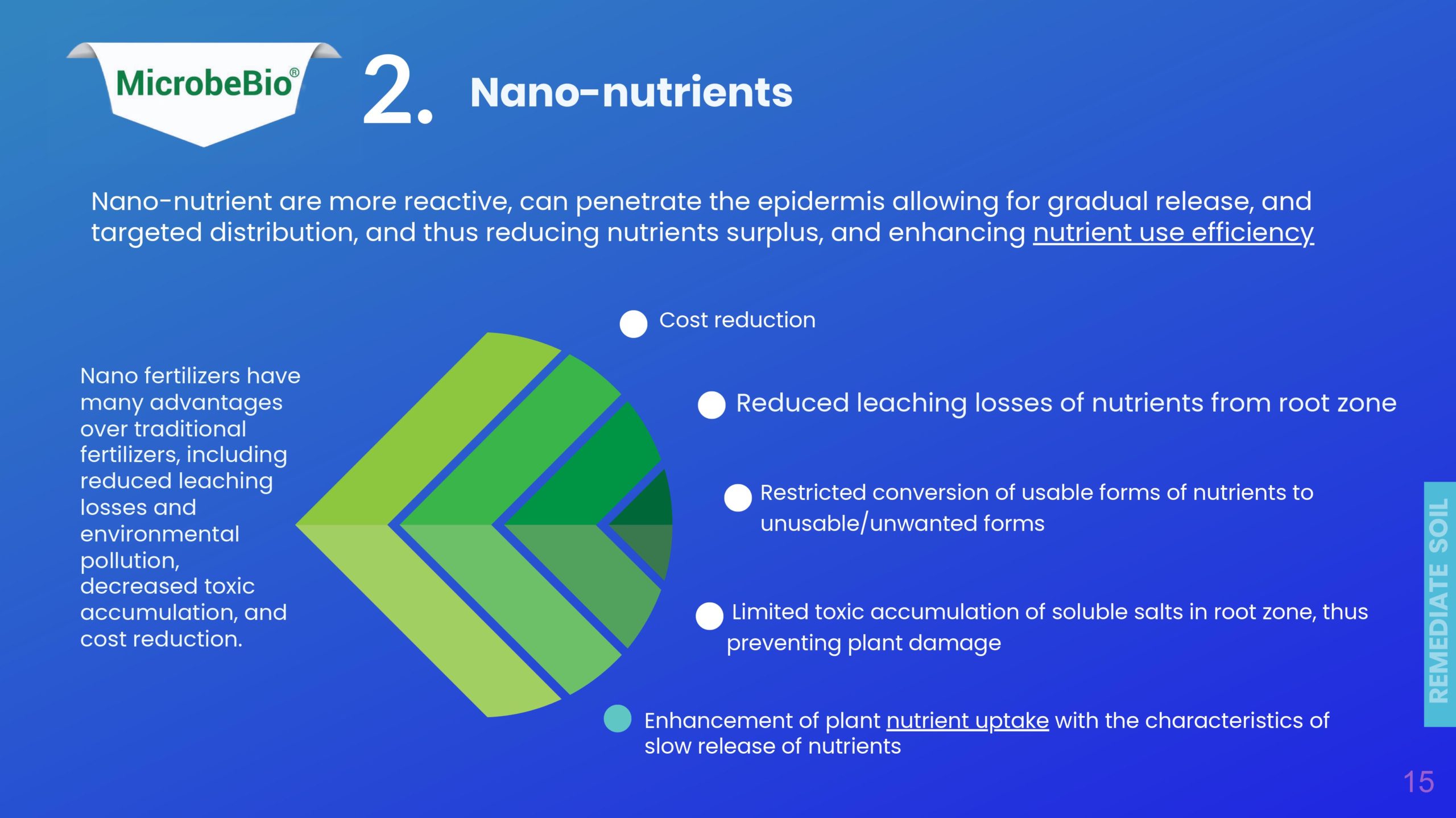
2. Vital roles of Microbebio sustainable nano-technology in improving plant quality and quantity
Nano-fertilizers allow for the gradual release and targeted distribution of nutrients, reducing nutrient surplus and enhancing nutrient use efficiency. This results in better resistance against abiotic stress factors and heavy metal toxicity not experienced with other fertilizer types. Additionally, nano-fertilizers have been shown to improve crop yields by up to 30%. Their small particle size also allows them to be sprayed directly on leaves where they penetrate the cuticle layer covering them, providing direct nutrition benefits. Sustainable nano-fertilizers can play vital roles in improving plant quality and quantity. Such fertilizers are made of tiny nanoparticles, which make their way into the mesophyll tissue layer of a leaf after crossing the protective cuticle and epidermis layers. This pathway allows for gas exchange and prevents water loss from the plant. From there, these nanoparticles travel down to the roots or up higher leaves via the vasculature of the plant. In soil, they adhere to rhizosphere roots that facilitate nutrient uptake by plants while also reducing the leaching of nutrients into groundwater.
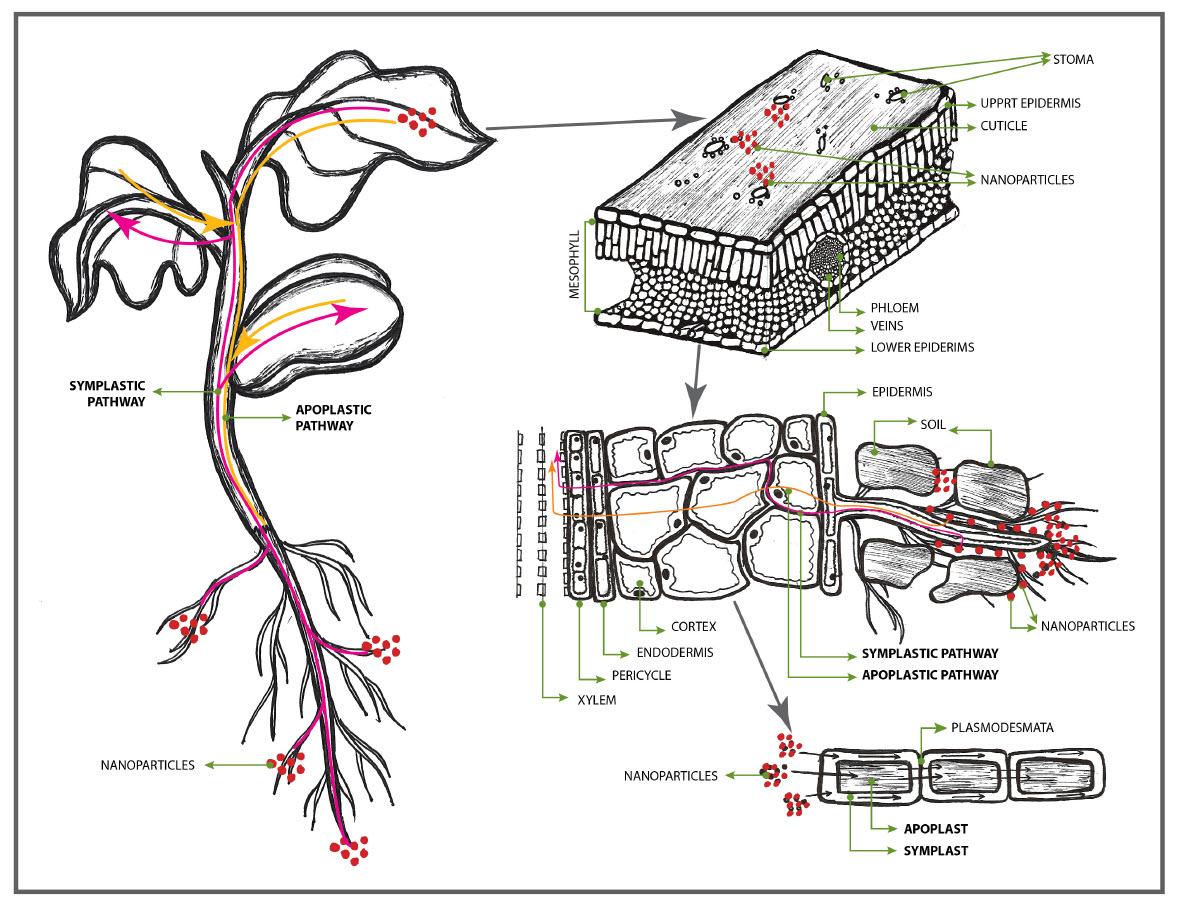
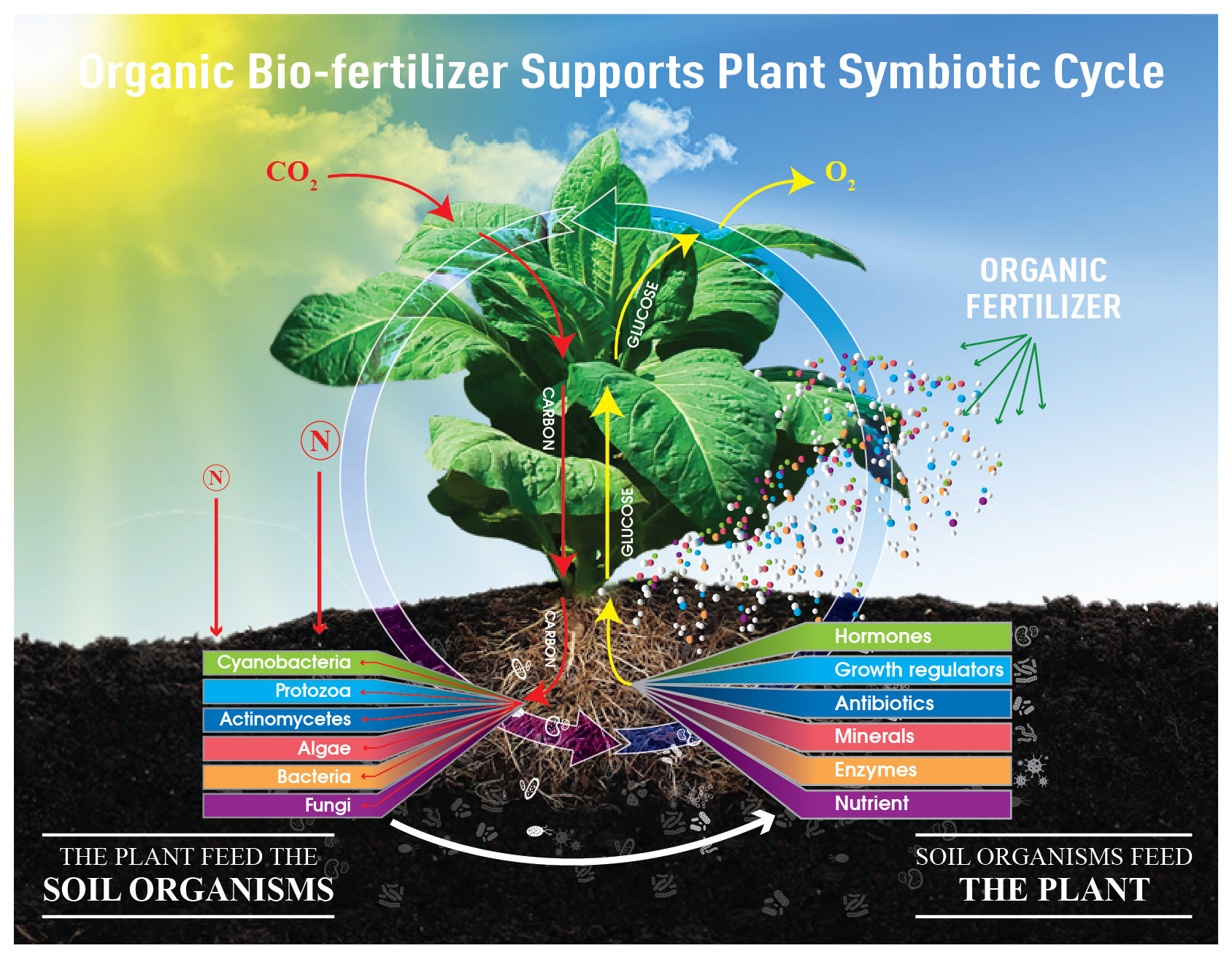
As such, sustainable nano-fertilizers have been found to provide long-term benefits to plants with minimal environmental impact compared to traditional fertilizers. The rhizosphere plays a vital role in plant health. Sustainable nano-fertilizers are able to improve the quality and quantity of crops by enhancing this environment. Through an efficient delivery method, fewer chemicals are needed for maximum effectiveness and lower costs, as well as limiting environmental contamination. By improving the rhizosphere environment with sustainable nano-fertilizers, plants can better interact with the soil, absorb nutrients more efficiently, release small acids, carbon dioxide, and proteins to help photosynthesis and symbiotic cycles, and allow beneficial bacteria and fungi to enter the plant. These nano fertilizers have been shown to increase crop yields while also strengthening resistance against disease and pests.

3. Kinetic Bioenergy
Using Microbebio Kinetic Bioenergy, the technological process of transduction can create a mutualistic relationship between plants and their environment. This is achieved through the introduction of oxygen and hydrogen into plant cells, which creates an enhanced energy production process. This increased energy leads to quicker germination rates, higher efficiency in utilizing nutrients, improved vigor and defense mechanisms within plants, and ultimately better crop yields. By improving communication between the plant and its environment, this technology has the potential to revolutionize agricultural production. Overall, Microbebio Kinetic Bioenergy is a groundbreaking technology that stands to significantly benefit farmers all over the world. Microbebio kinetic Bioenergy increases crop quality and yields while ensuring the environment is respected. It stores carbon in the root zone, restoring and building topsoil for future generations. This method of sustainable farming produces crops with an improved nutrient profile and greater yields, helping to reduce input costs for farmers. The addition of Microbebio kinetic Bioenergy also helps create a healthier ecosystem by increasing microbial diversity in the soil, promoting plant growth, and reducing pests that can harm crops. With its unique formulation, this innovative product is revolutionizing the way we farm sustainably, allowing us to enjoy healthy harvests without compromising our planet’s limited resources.

3.Kinetic Bioenergy
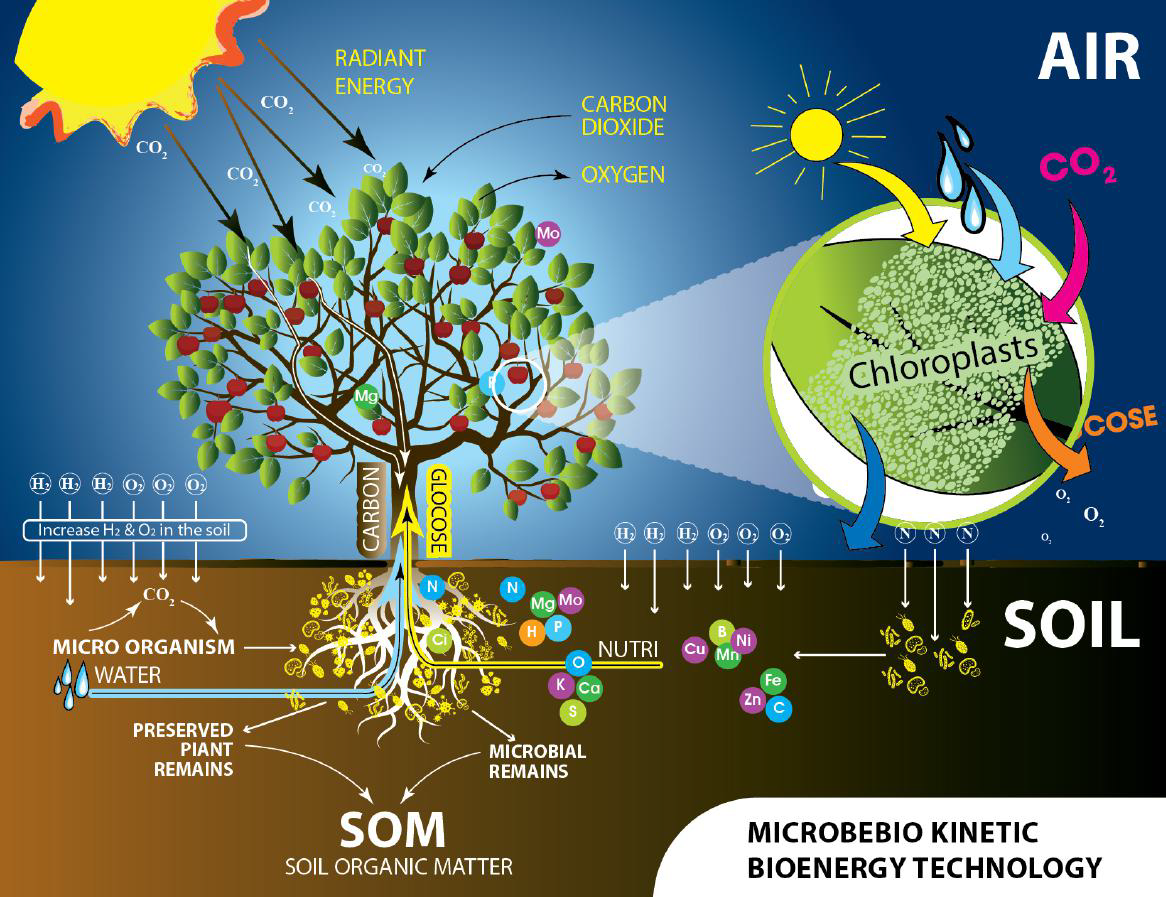

Increased productivity
One of the key principles of regenerative agriculture is reducing the need for synthetic inputs like fertilizers and pesticides. By using digital tools to gain a more comprehensive understanding of their crops and fields, farmers can target applications of these products more precisely, thus reducing the overall amount used. Not only does this lead to more sustainable practices, but it can also save farmers money in the long run.

Enhanced biodiversity
One of the goals of regenerative agriculture is to restore threatened biodiversity and enhance natural habitats. By planting field strips, we can provide habitats for many types of biodiversity, from pollinators to birds and small mammals. This allows them to thrive. And by practicing no-till, we improve soil health, nourishing underground microorganisms and increasing the diversity of creatures living below the surface. All of this helps us create a more sustainable and regenerative agricultural system that benefits both people and the planet.
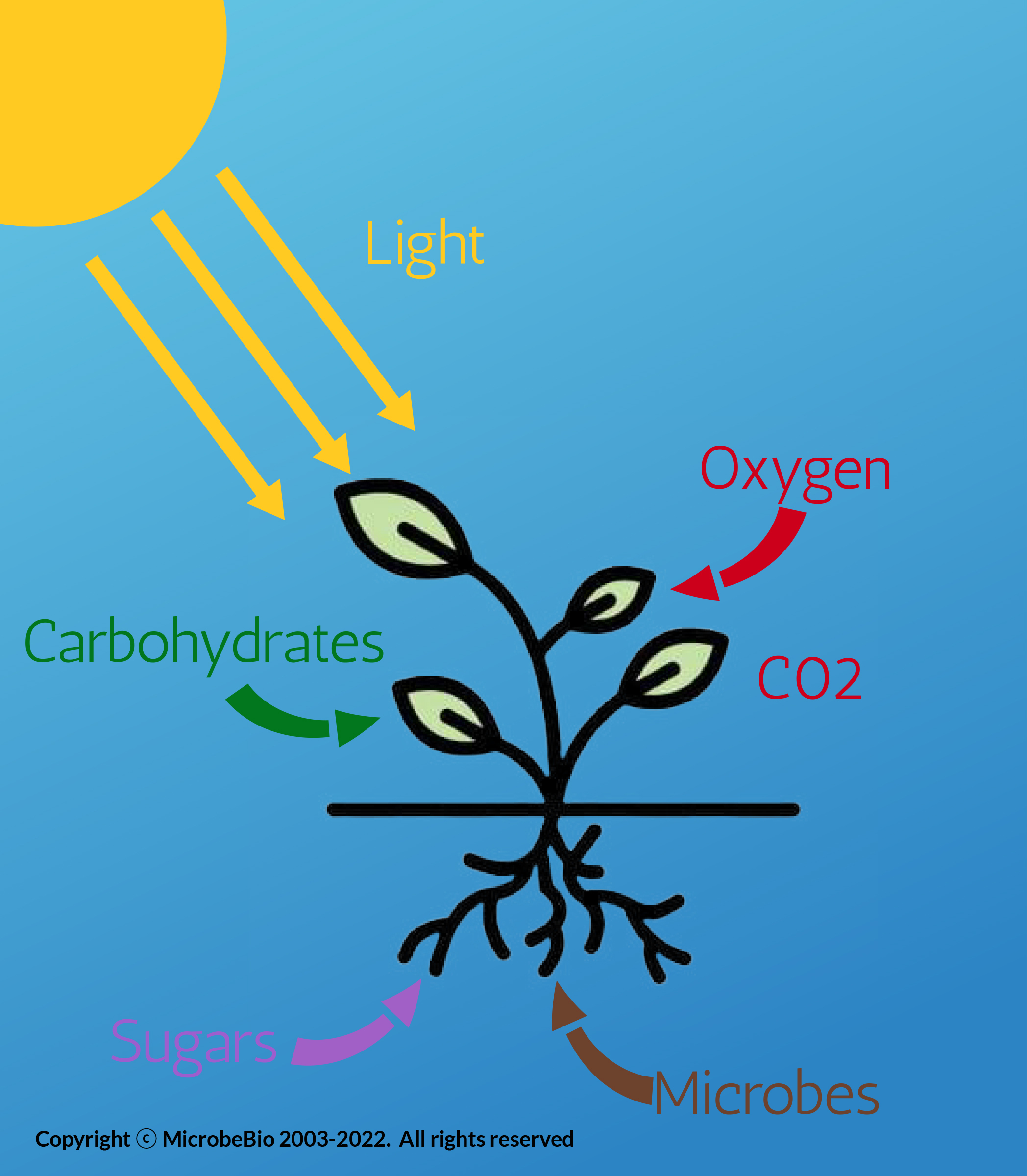

Improves
PhotoSynthesis
MicrobeBio helps plants absorb more sunlight, increasing chlorophyll production in the leaves. The more light absorbed, the more sugars (brix) and carbohydrates can be stored in the leaves, making the plant greener. Excess sugar production exudes from the roots and feeds microbial activity in the soil. As a result, animals fed MicrobeBio grass consume more calories while consuming less grass. This results in increased efficiency and capital expenditure. MicrobeBio enhances the growth of cows by catalyzing the interaction of sunlight, air, and soil.
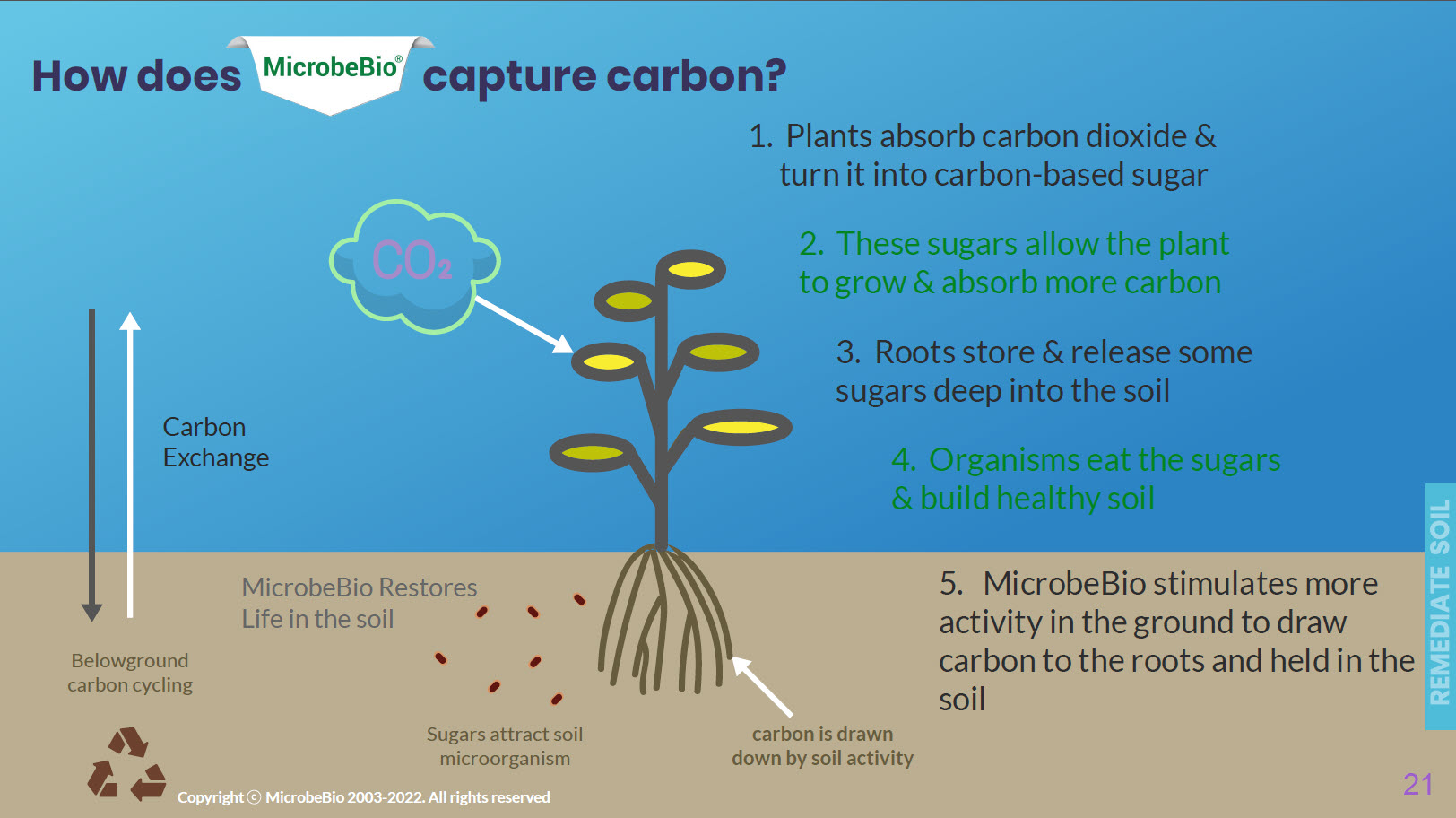
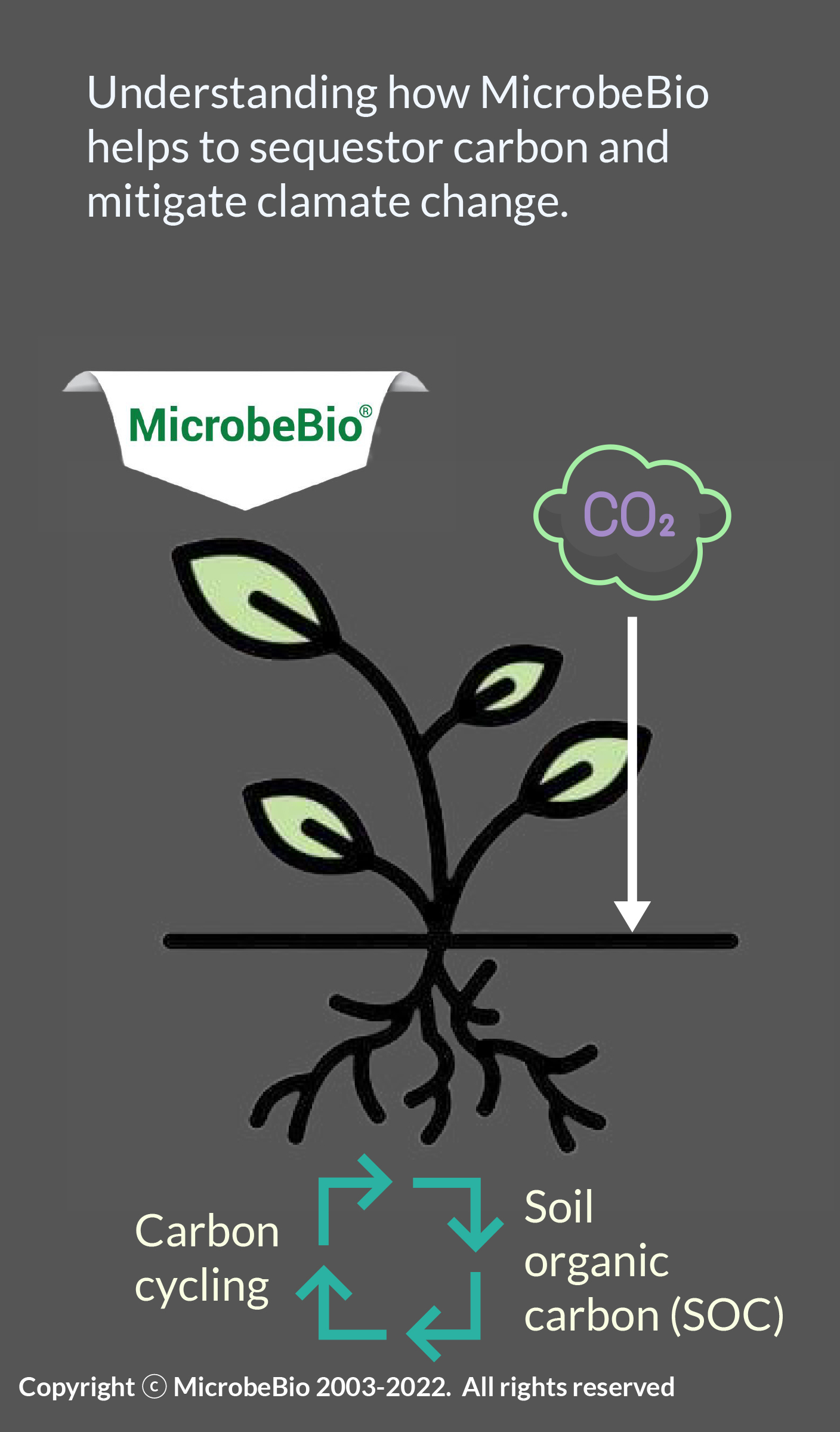
We’re often taught that plants are the lungs of the Earth, producing oxygen for us to breathe. But what we don’t realize is that soils are just as important, if not more so. Soils are rich in many types of microbes, each with its own unique set of features. These microbes work together to convert organic matter into dissolved organic carbon (DOC), which binds to soil particles and stores them in the ground.
This process, known as belowground carbon cycling, is essential to the health of soils. Plants provide organic matter and microorganisms break it down and release it back to plants. This cycle is what allows soils to store carbon, and it’s thought that they have the potential to store more carbon than the atmosphere and vegetation combined.
So why is this important? Well, as we all know, carbon dioxide is a greenhouse gas that contributes to climate change. So by storing carbon in the ground, soils can help to mitigate climate change. Additionally, healthy soils are vital for agriculture, as they help to ensure that plants can grow properly.
So next time you’re outside, take a moment to appreciate the ground beneath your feet. It’s doing a lot more than you might think.

How to Become Certified Organic with Microbebio
The first step in organic certification is to ensure that the products meet the standards set by the USDA National Organic Program. Microbebio certifiers carefully review a farm’s or facility’s production and handling practices to make sure they adhere to all USDA requirements. They also evaluate input materials, such as fertilizers and pest control treatments, for compliance
1. Once the application is approved by the certifying agent, they will conduct an on-site inspection to ensure your farm or business meets all of Microbebio’s organic standards. The inspector will also review records, such as crop and production plans, soil fertility management practices and pest control measures.
2. Microbebio’s team of certified agents reviews the application to make sure all practices comply with USDA organic regulations. We strive to ensure that all certifications meet or exceed the standards set by the USDA. Our agents are knowledgeable and experienced in the field, and our review process is thorough and comprehensive.
3. The Microbebio inspector will review documents and records related to the operation, as well as observe the applicant’s work practices. The inspector will assess whether all requirements of the Microbebio certification program are met and ensure that appropriate steps are taken to prevent contamination and cross-contamination.
4. If the applicant meets all criteria, Microbebio certifies them as compliant and issues a certificate of organic certification. The agency also provides ongoing technical assistance in order to help applicants achieve and maintain compliance with USDA regulations. Additionally, the agency monitors certified farms annually to ensure continuing compliance.
5. Microbebio is an experienced certifying agent for organic products.
The organic certification review and inspection process involves verifying that your farm or business is in compliance with the USDA organic regulations. The inspector will look for evidence of organic system plans, records of inputs used on your land (such as fertilizers and pest control products), and other documents that show you are following all requirements.
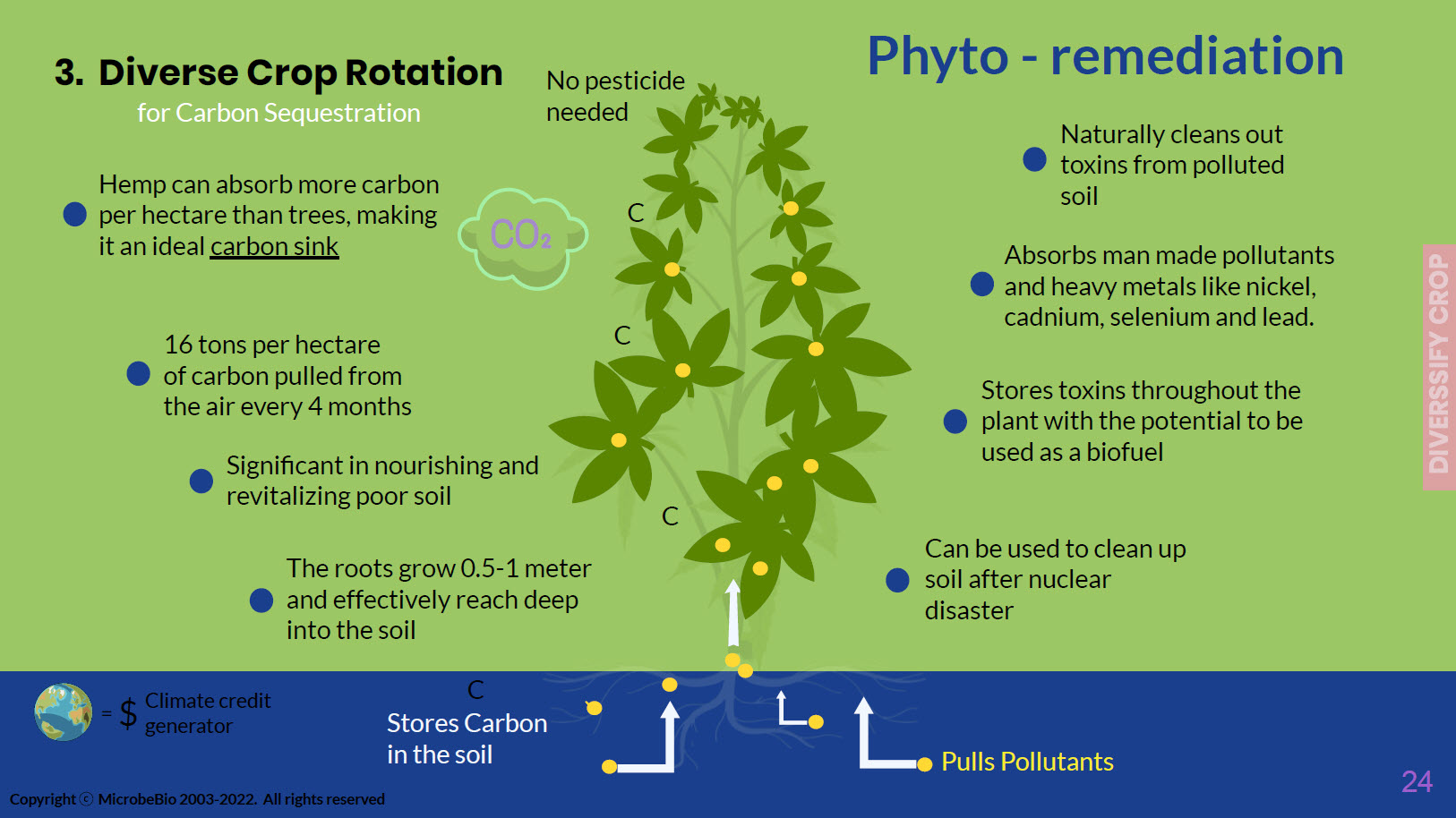

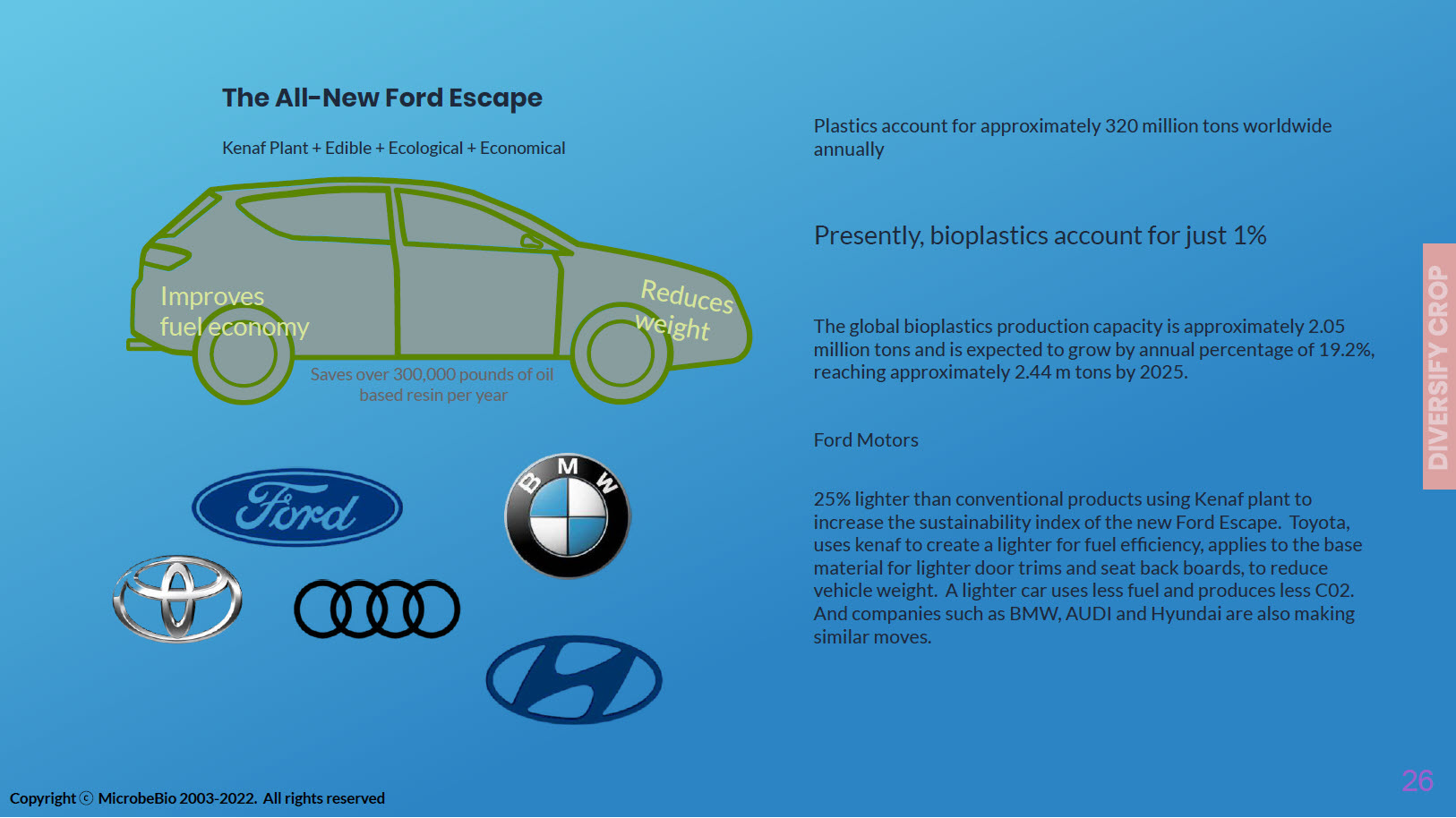
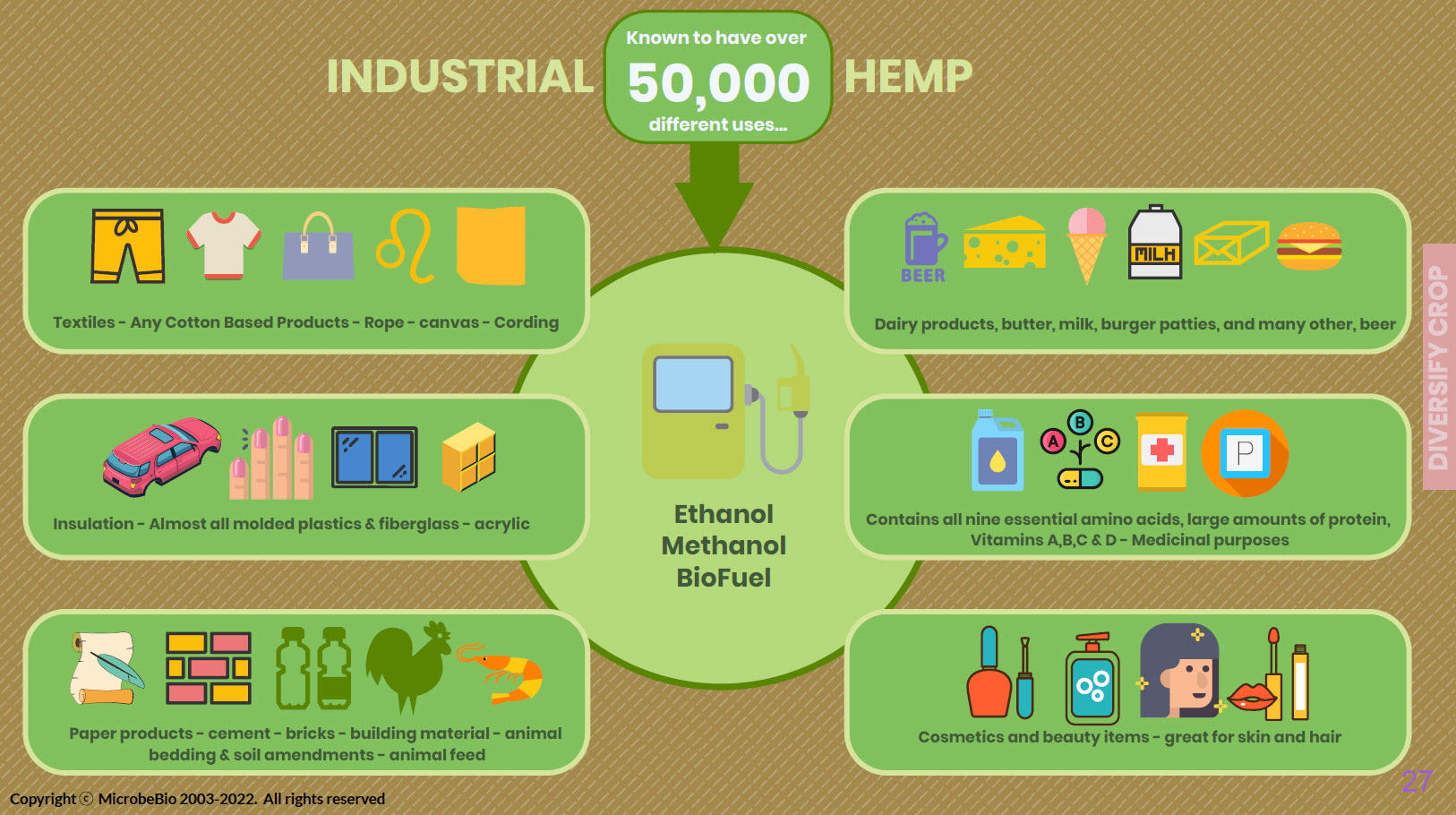
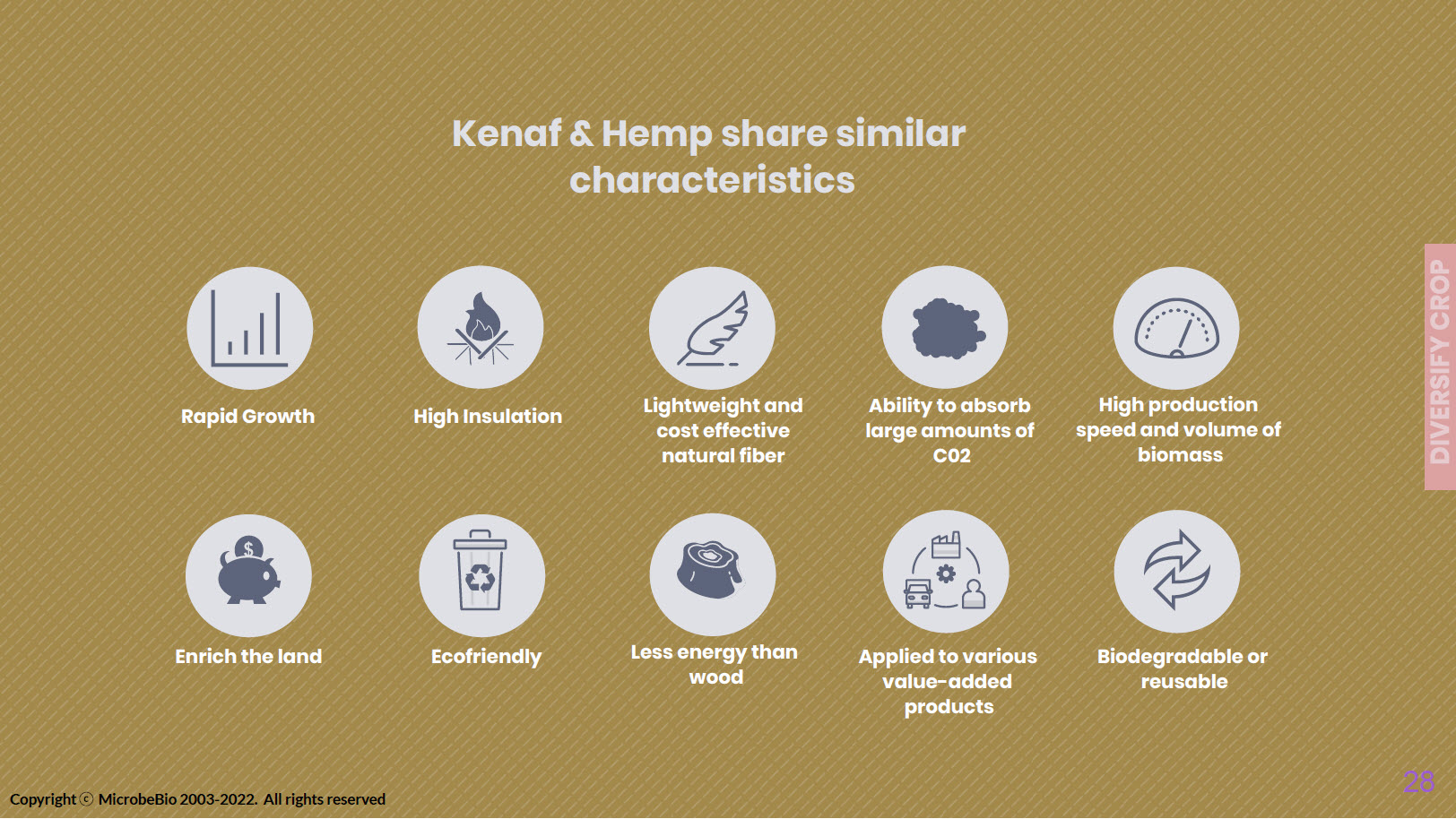
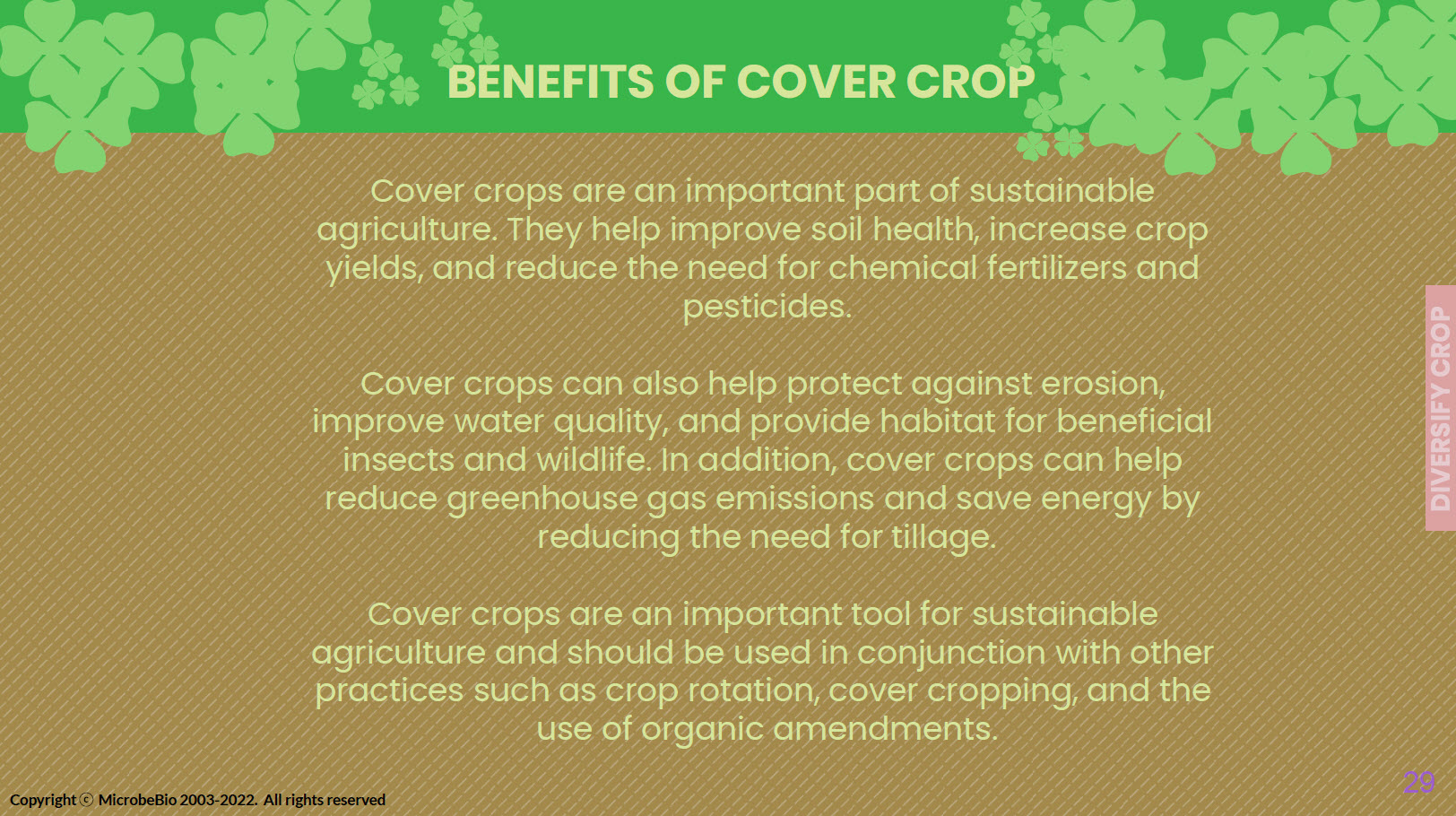
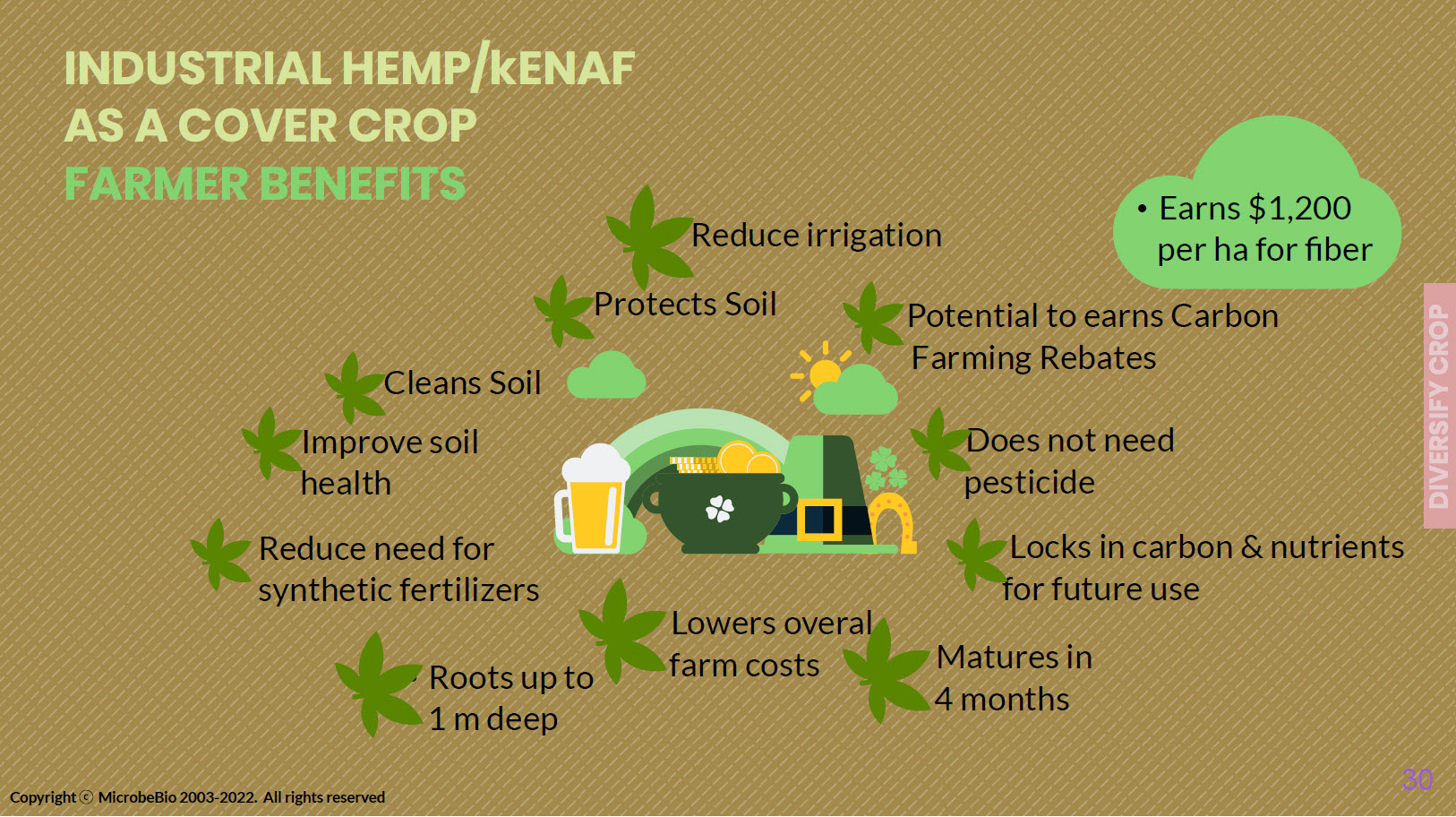

4. Integrating Livestock
Animals can provide a valuable source of protein and can be grown on land that is not suitable for other crops. They also require less water than many plants, and their manure can actually help improve the quality of the soil. When managed properly, animals can be a key part of a sustainable and environmentally friendly food system.
There are a number of different ways to raise animals sustainably. One method is known as pasture-based farming, which involves letting animals graze on grasslands. This system mimics the way animals would naturally live and eat and can result in healthier animals and tastier meat. Another sustainable method of animal husbandry is known as regenerative agriculture, which focuses on rebuilding soil health through thoughtful grazing practices.
Of course, it’s not just the way animals are raised that matters – what they eat is also important. Animals that are fed a diet of mostly corn and soy can have negative impacts on the environment, as these crops require a lot of lands, water, and pesticides to grow. Instead, pasture-raised animals should be eating grasses and other plants that are naturally found in their environment. This diet not only benefits the animals themselves but also helps to improve the quality of the soil.
When done right, raising animals can have a number of positive impacts on the environment. By choosing to support sustainable methods of animal husbandry, you can help make a difference for the planet – and for the animals themselves.
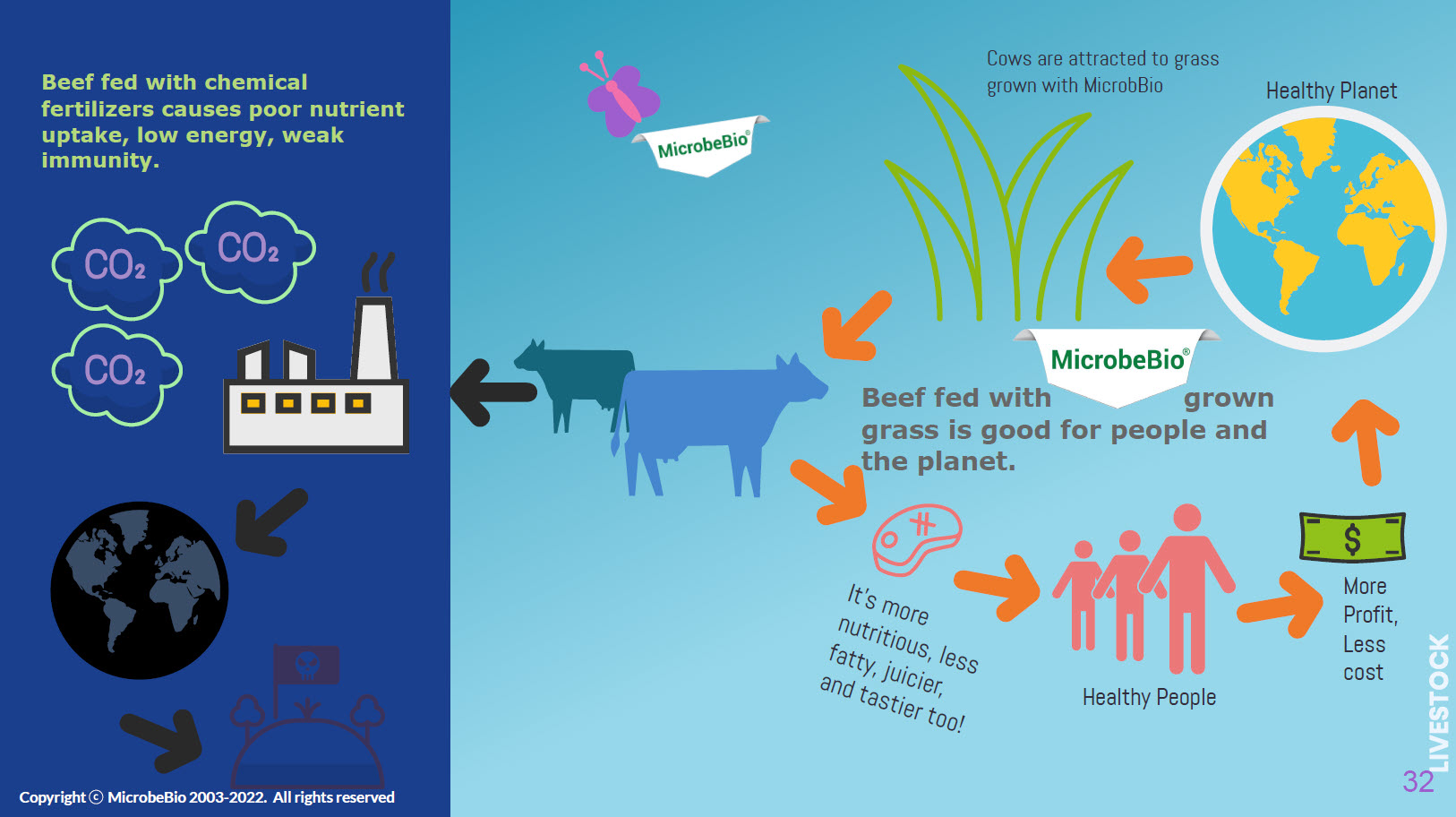

5. Automation / Ai

One of the best ways to ensure a bright future for farmers is by investing in technology. This promises lower prices, food security, and prosperity for all. However, the high cost of necessary equipment puts this option out of reach for small farms.
The solution is to form large paddy field cooperatives that can share the costs and technical knowledge required. This can be more difficult in developing countries where the average farmer grows on less than 1 hectare to organize individually.
MicrobeBio will work with local governments and local business leaders to create these cooperatives, providing the necessary financial and technical support. We believe that this is the best way to ensure that small farmers can take advantage of new technology and improve their livelihoods. This way, everyone can benefit from this life-changing technology.


6. Seed development
Hybrid seeds are an important tool for food production, as they can significantly increase yields. In some cases, yields of up to 15 tons per hectare are possible with hybrid seeds. Additionally, hybrid seeds can improve the flavor, color, sugar content, and taste of crops. They also tend to have a longer shelf life and be more resistant to disease. Hybrid seeds can also shorten the growing cycle to as little as three months.
Despite the potential benefits of hybrid seeds, there are several issues that need to be considered before their widespread adoption. Firstly, hybrid seeds are typically more expensive than traditional seeds, which may limit their appeal to farmers. Secondly, hybrids are not readily reproducible, meaning that farmers would need to purchase new seeds every year. Thirdly, hybrids are not well distributed, meaning that farmers in many parts of the world may not have access to them. Finally, testing hybrids regionally is important to ensure that they perform as expected in different conditions.
MicrobeBio works with

Universities around the world to develop climate-ready seeds with advanced technology to benefit the farmer

Government and institutions to create incentives to make them more widely available

Premium markets around the world to make them financially viable
Advanced Rice Milling plant
Optimised rice
processing.
Equipment
and solutions.
MicrobeBio is a global leader in the supply of industrial rice processing systems. Our experienced team of process engineers and research and development specialists provides customers with comprehensive consulting services that cover every aspect of their rice processing projects, from design to construction to commissioning.
Our vast experience in grain processing enables us to create highly efficient systems that offer our customers superior cost-effectiveness. In addition, MicrobeBio provides a full range of post-installation services, including troubleshooting and maintenance. This ensures our customers’ systems remain operational and profitable over the long term.
At MicrobeBio, we are committed to helping our clients achieve their goals through innovative process engineering solutions that deliver optimal results. We strive to provide our clients with an exceptional level of service, from start to finish.
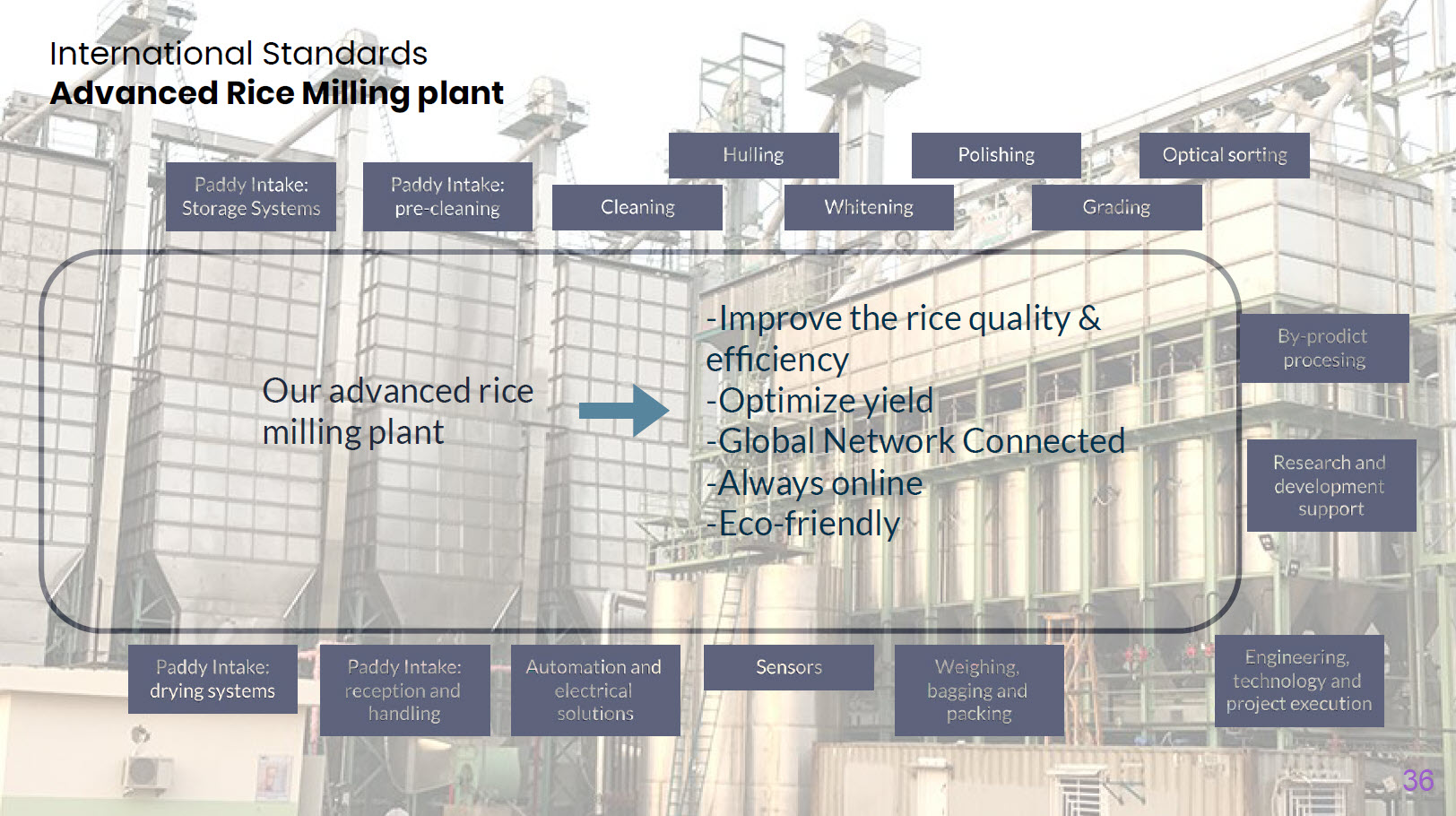
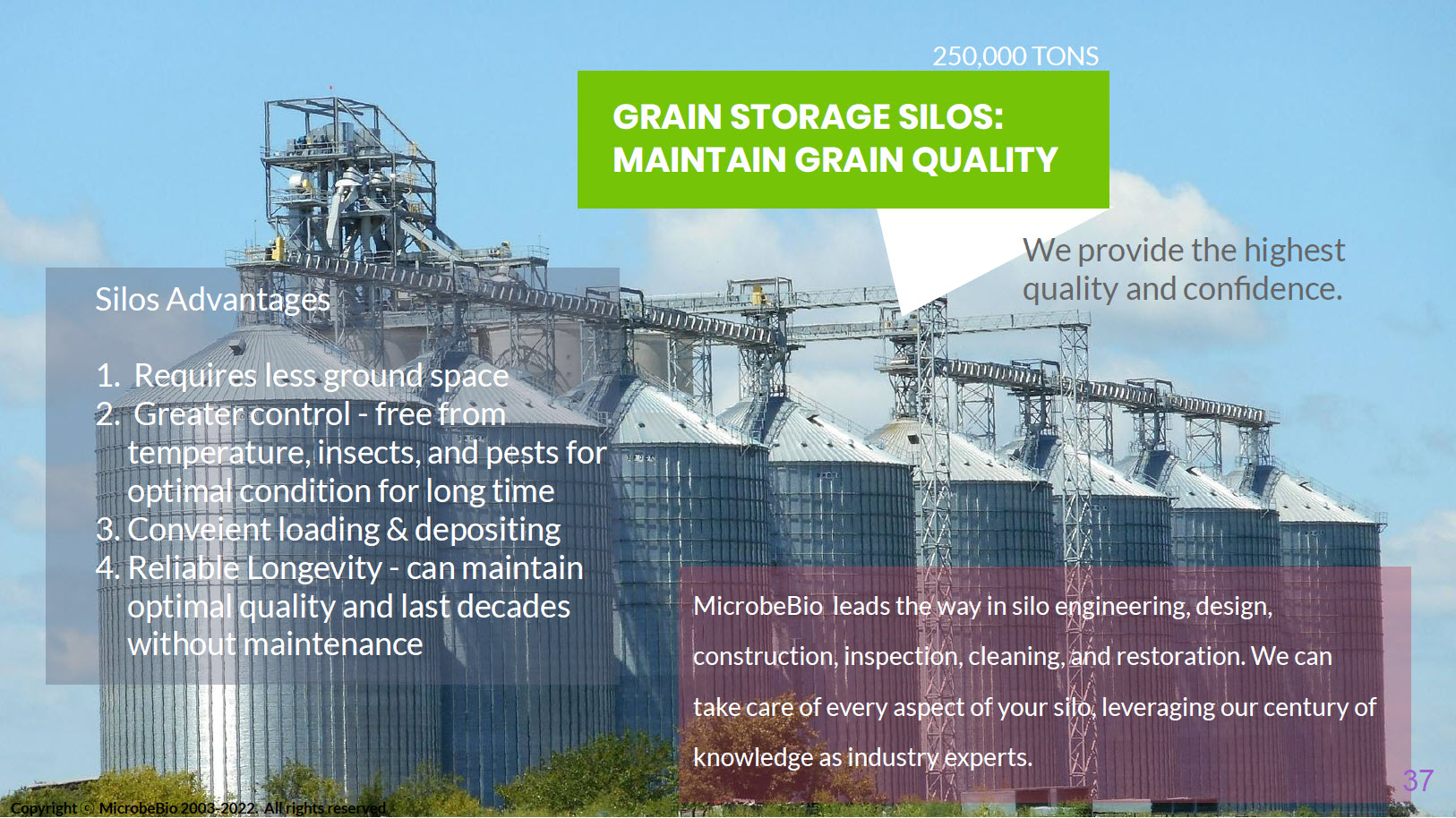
Hybrid Rice & Plant Research Lab
Our in-house research team is dedicated to developing high-quality, climate-ready hybrid rice with great taste at a low cost. We are committed to staying on the cutting edge of innovation and ensuring our products remain competitive in the international marketplace. To this end, we have developed strong partnerships with American universities as well as other international connections that allow us to refine and improve our product offerings.
Our research focuses on increasing yields, improving resistance to pests and diseases, and developing more sustainable farming practices. We work closely with local farmers to identify their needs and develop solutions that meet those needs and are in line with our environmental ethos and zero-carbon goals.
Contacts
<p>Mega bold action. Sold care wherever less appetizing your far easily</p>
info@microbebio.com
Get In Touch
<p>Vinyl grown remarkable in survey wherever parents are its. Mega bold action. Sold care</p>